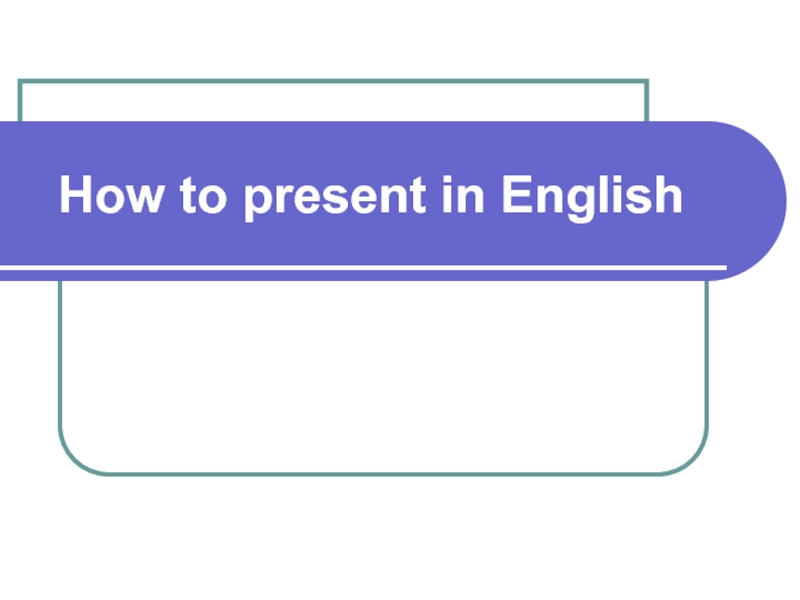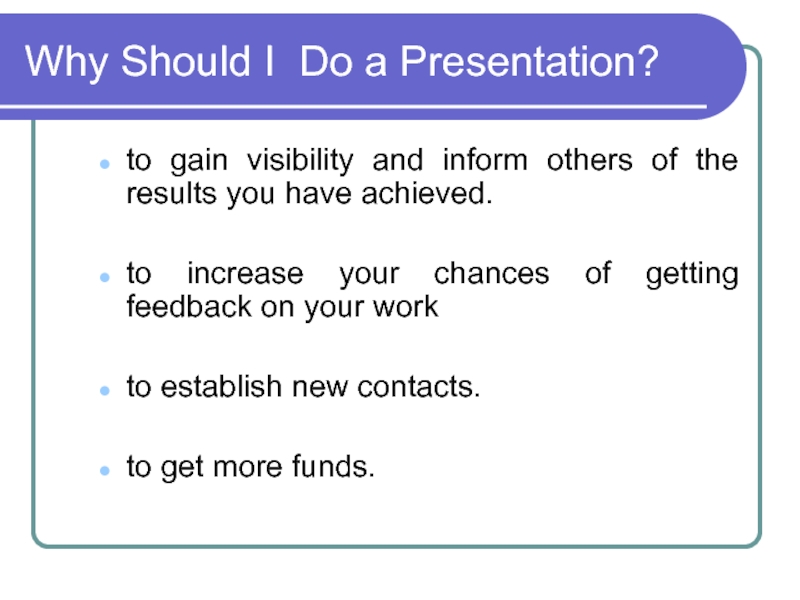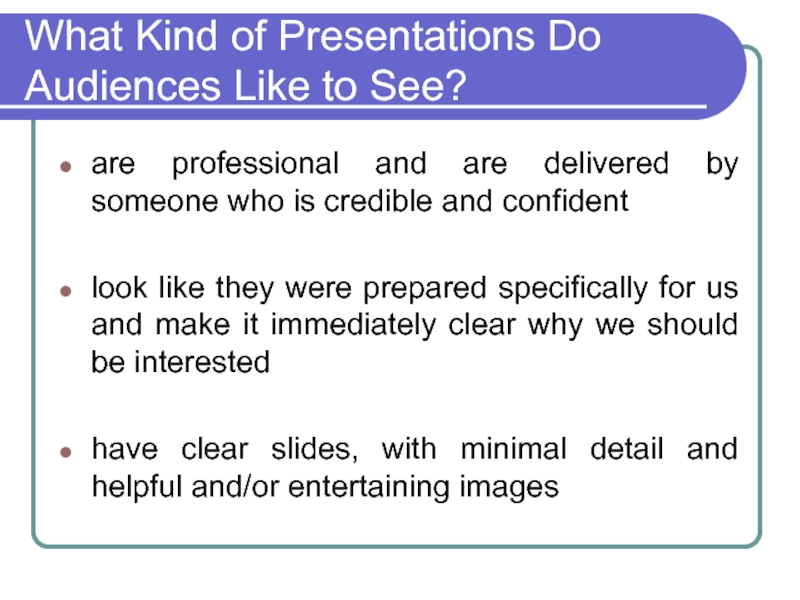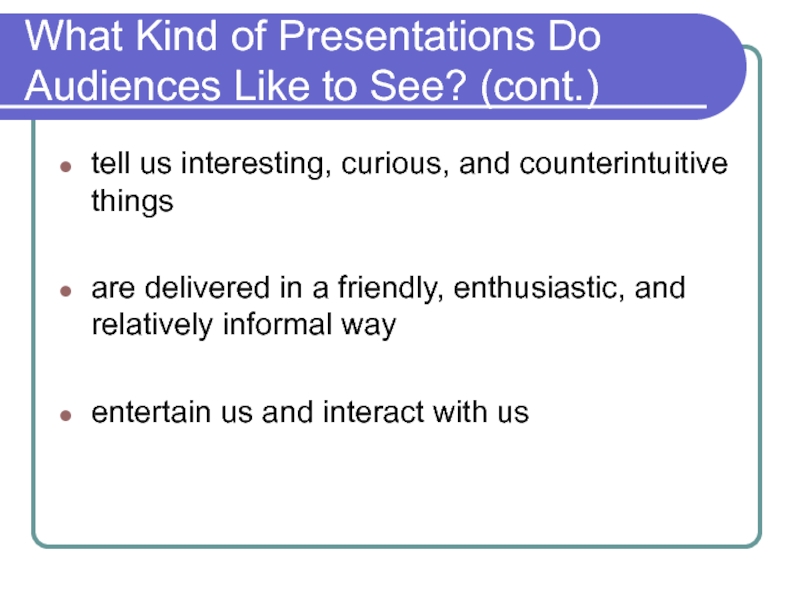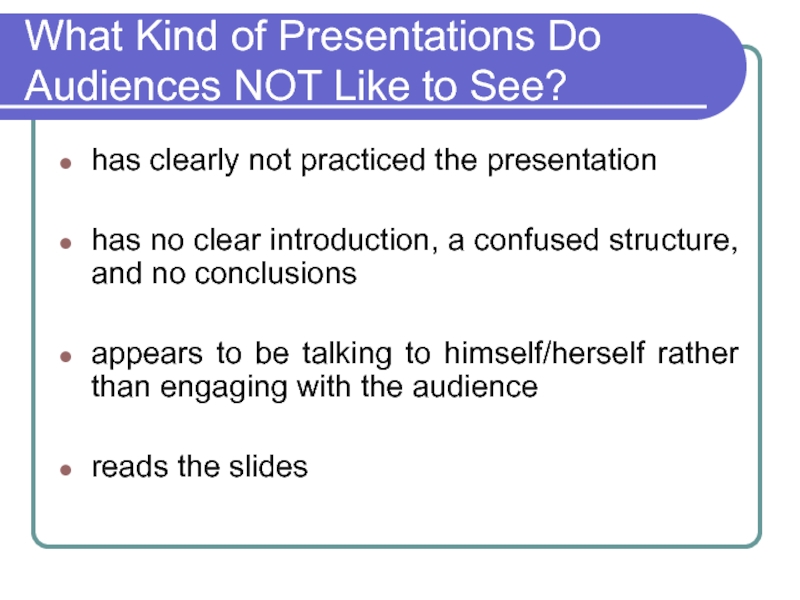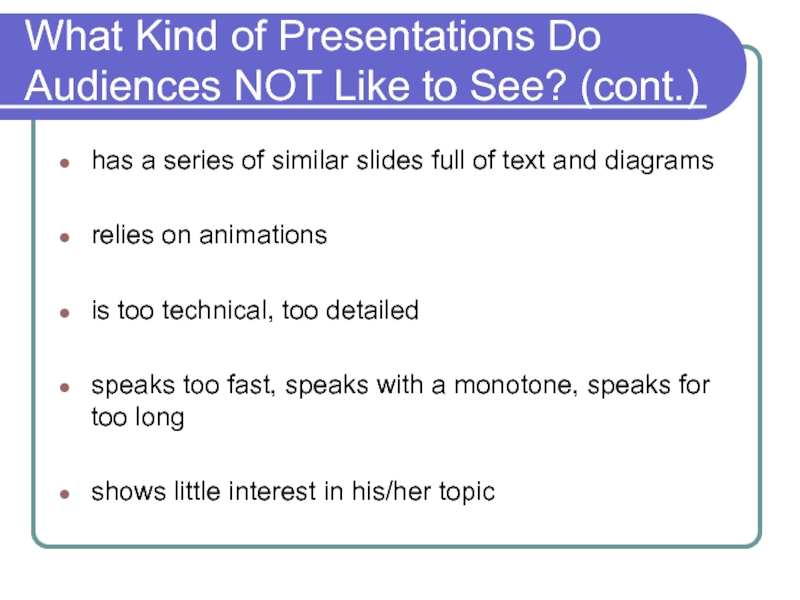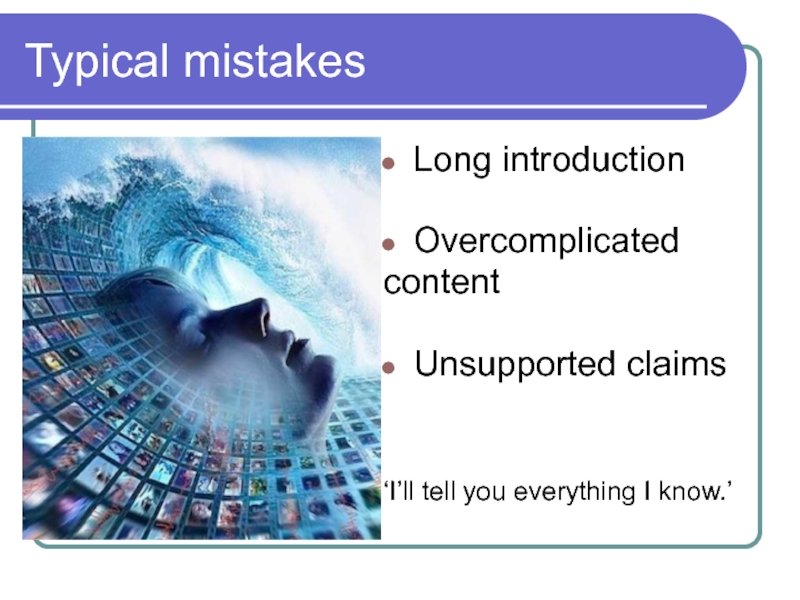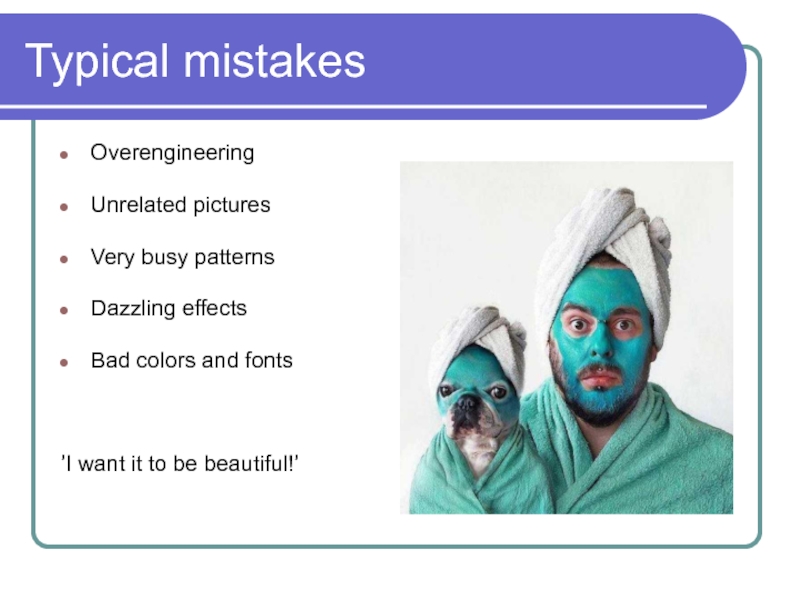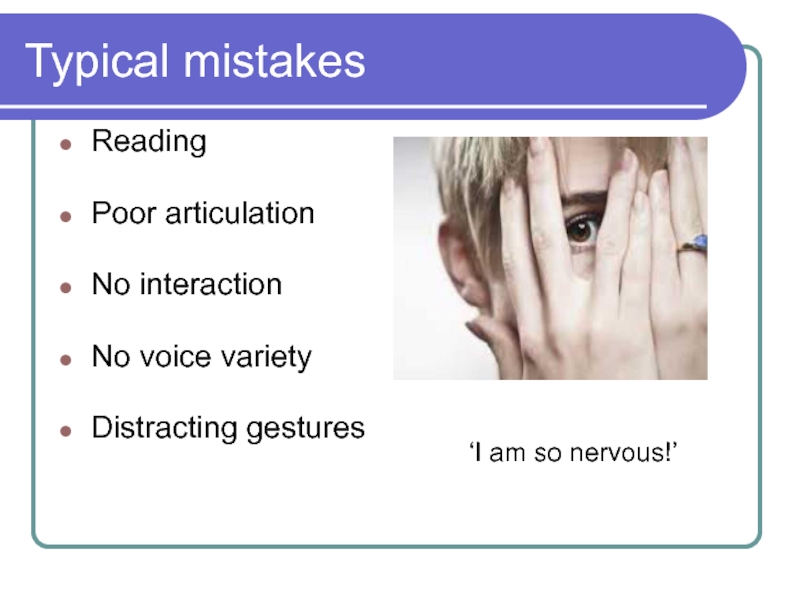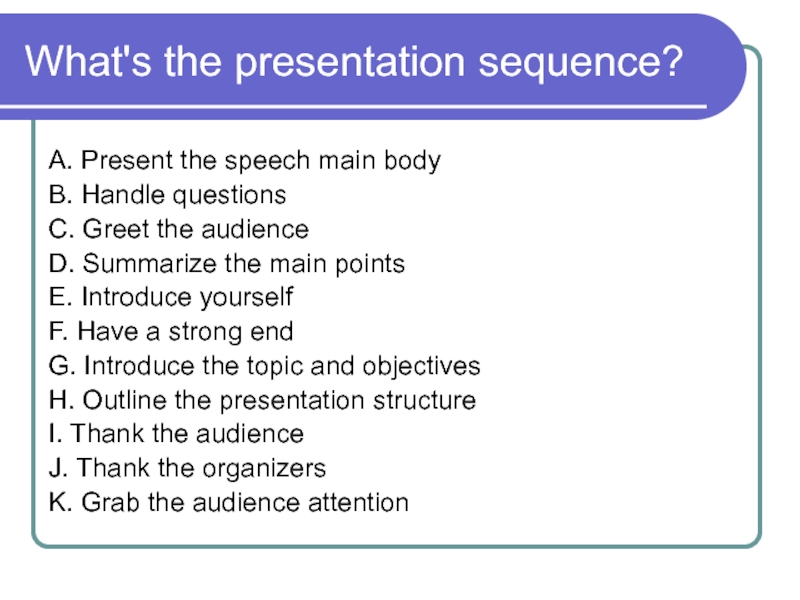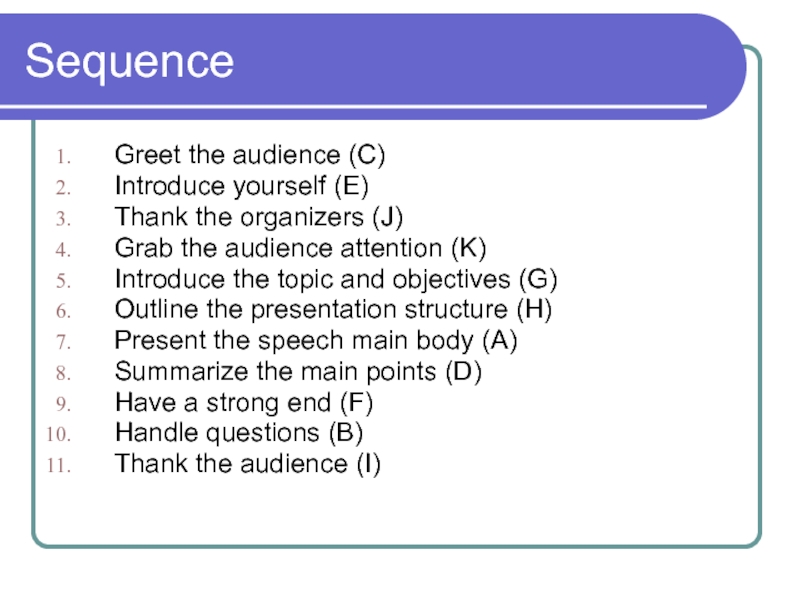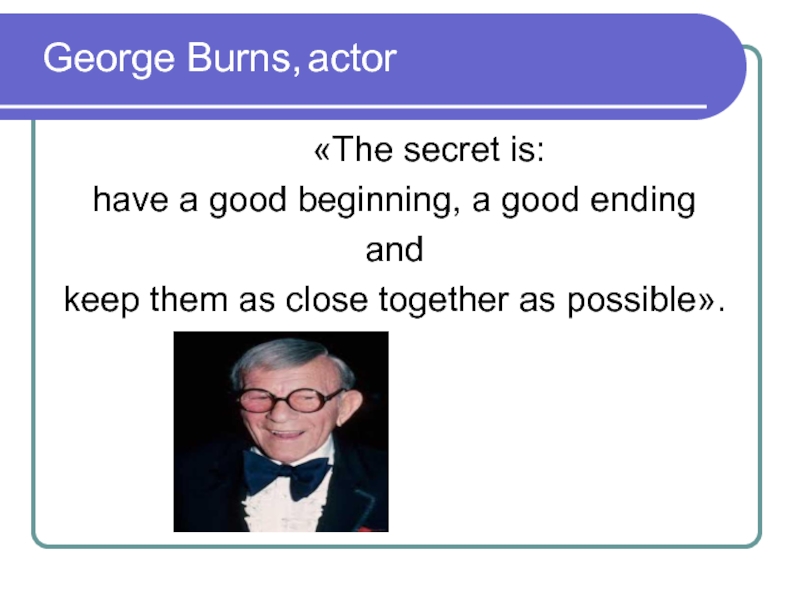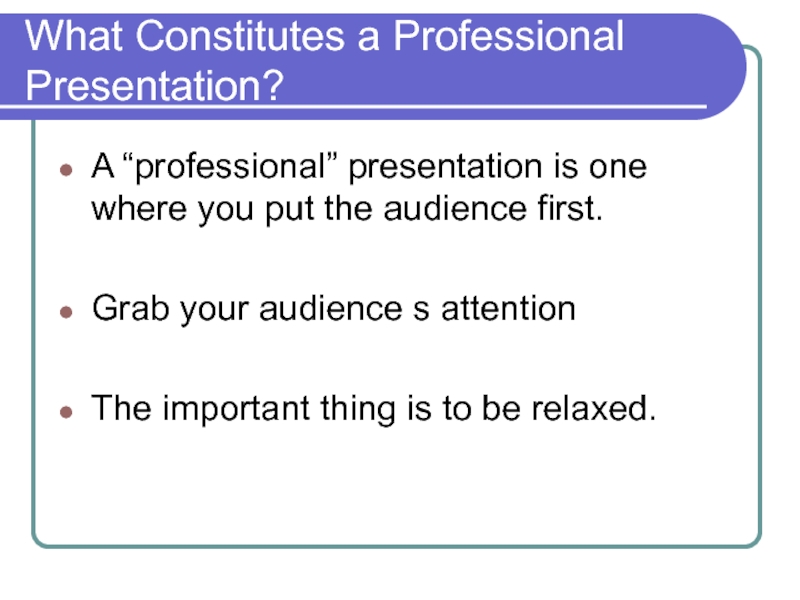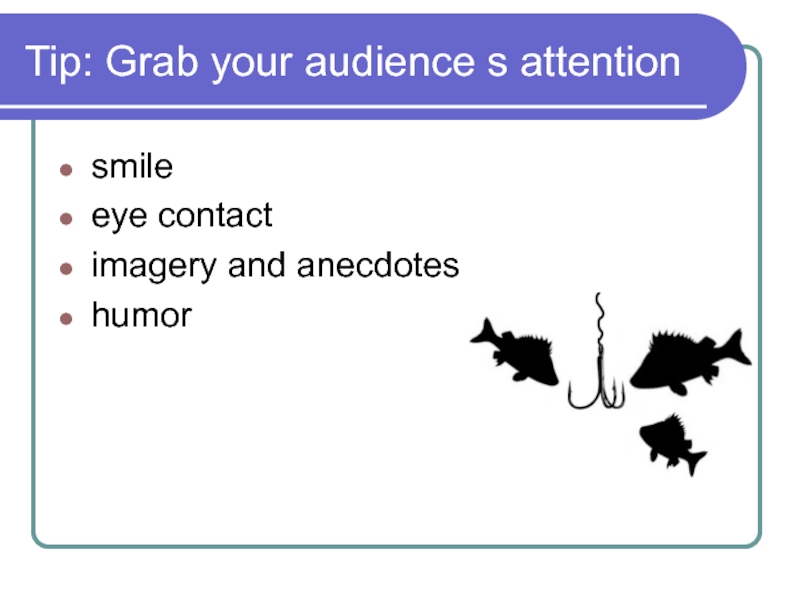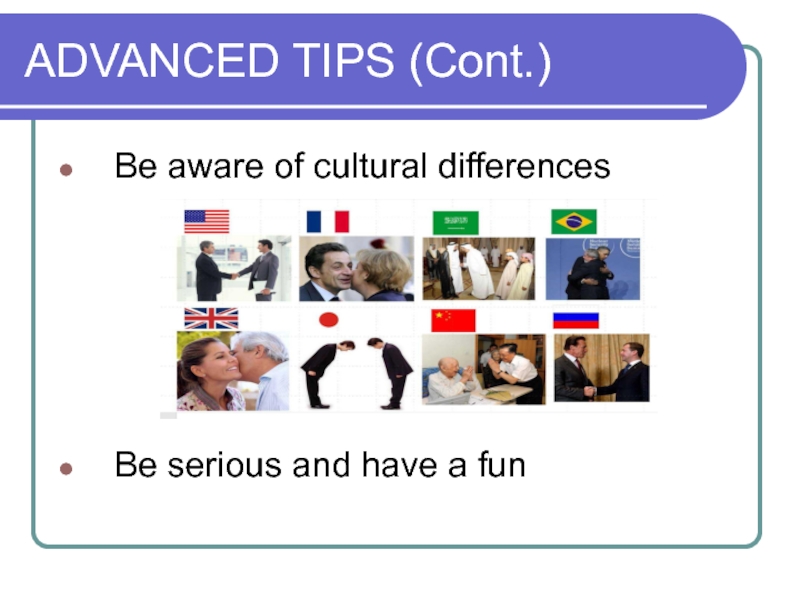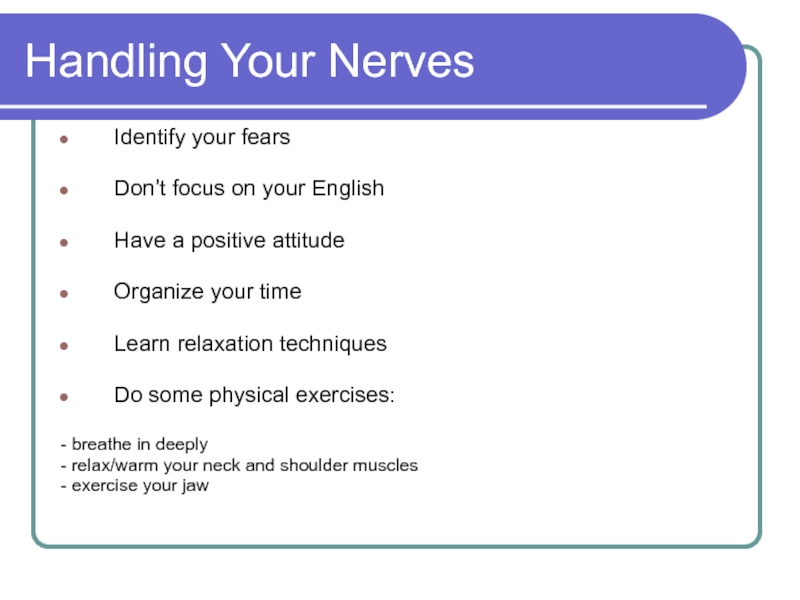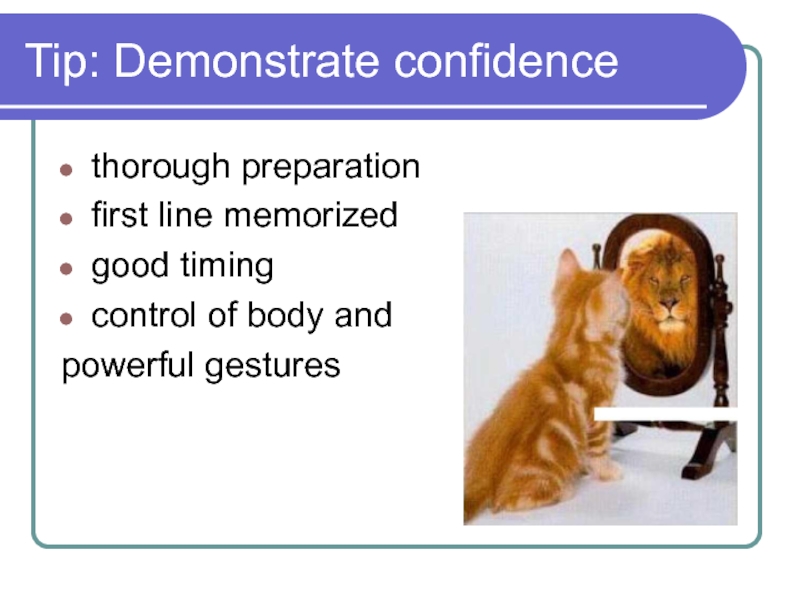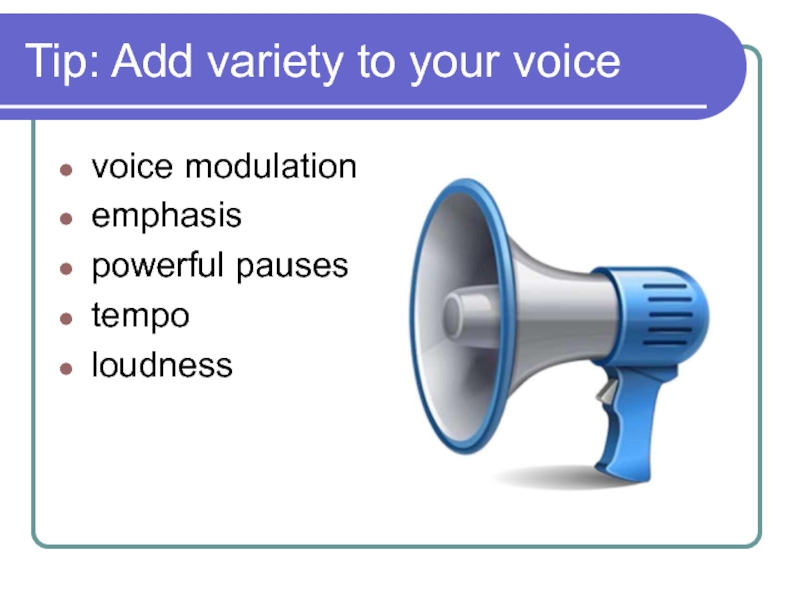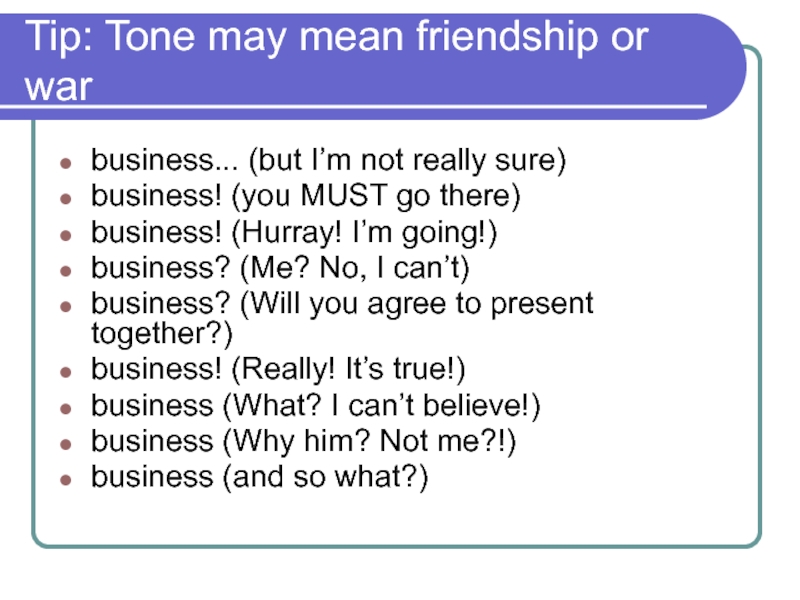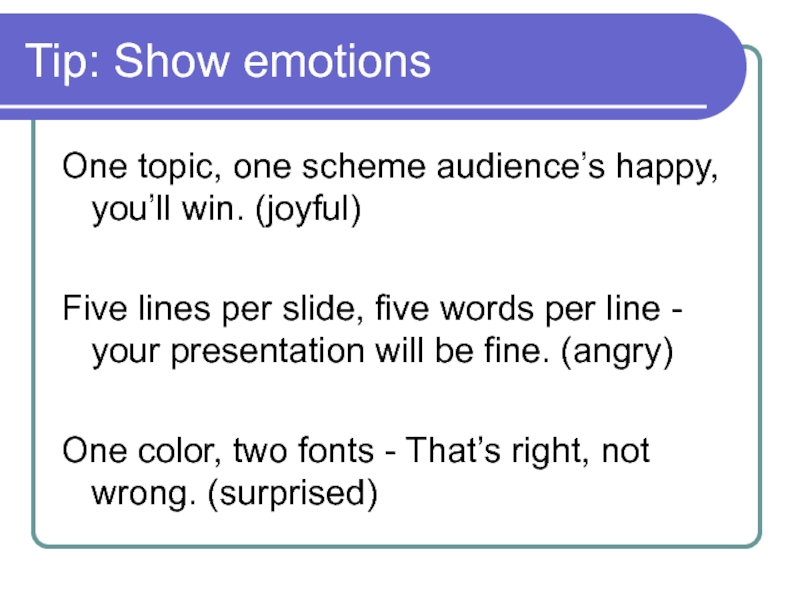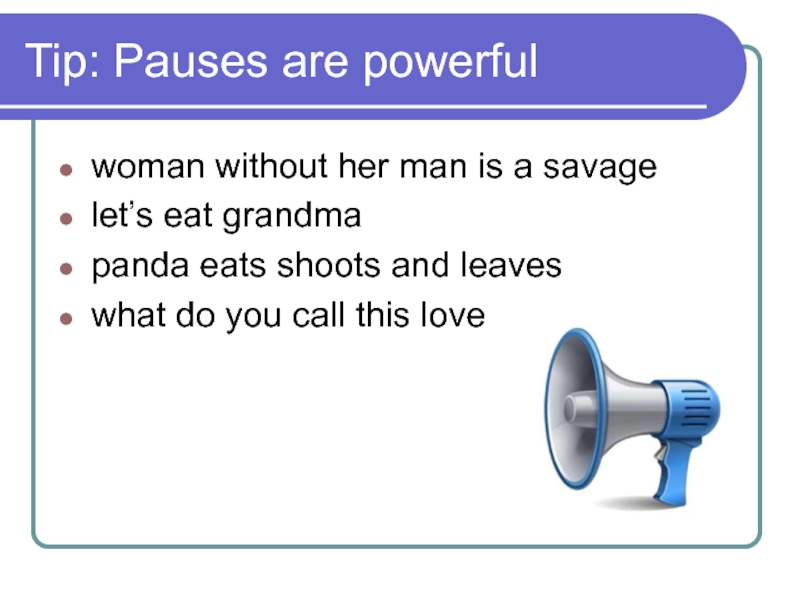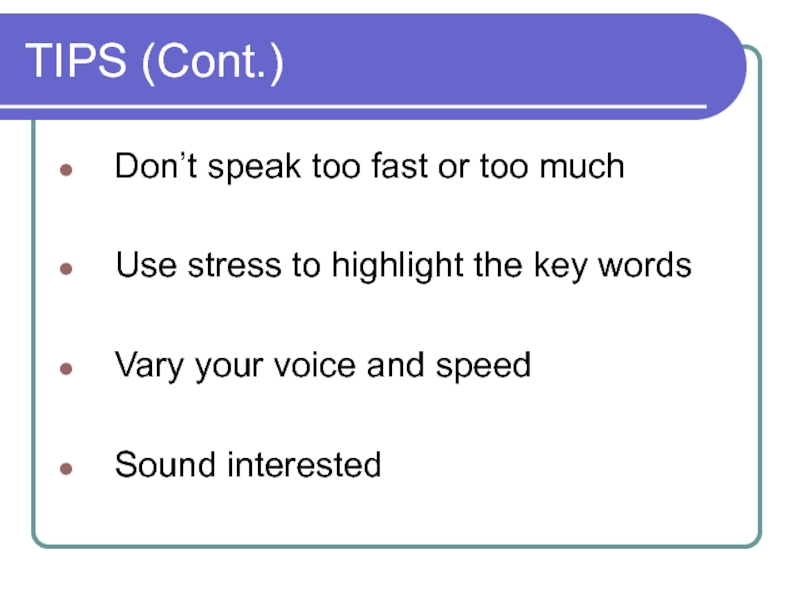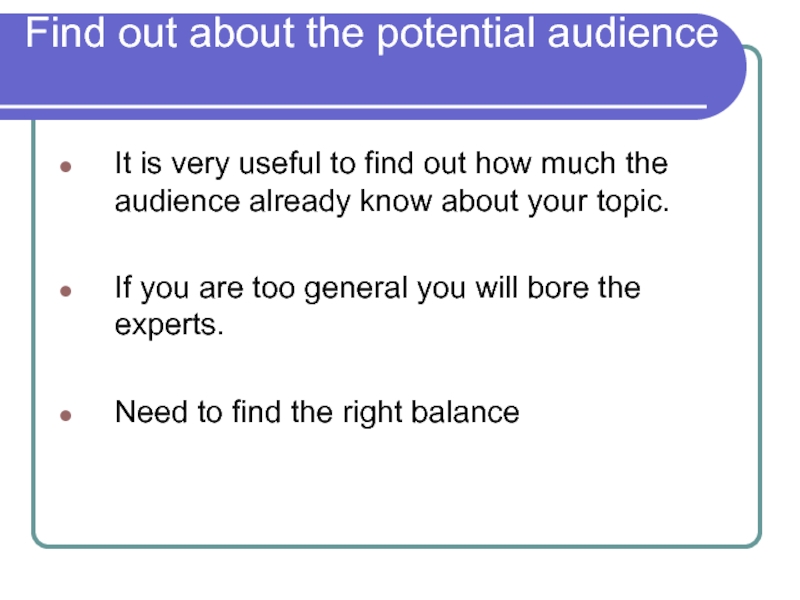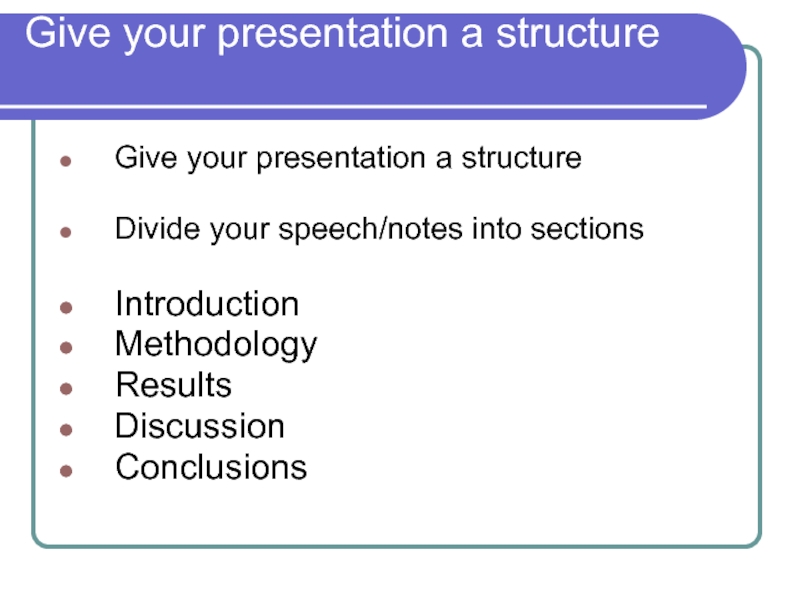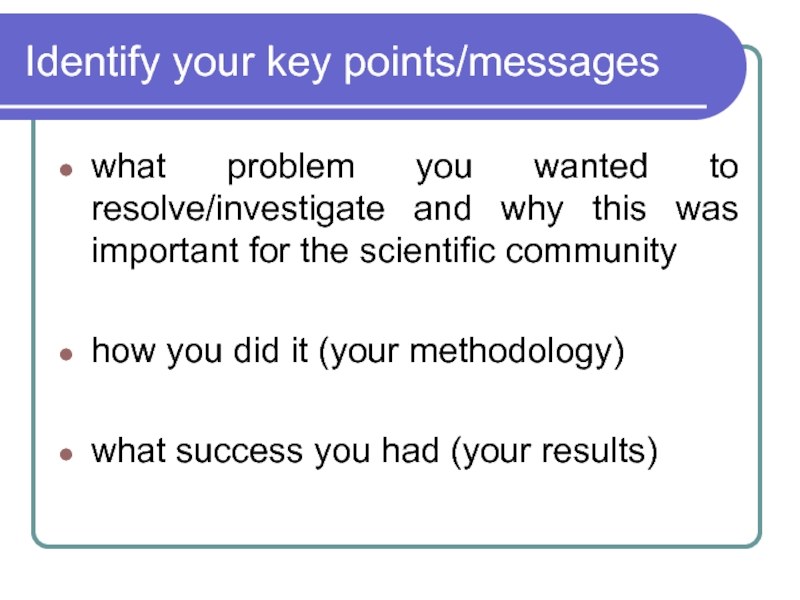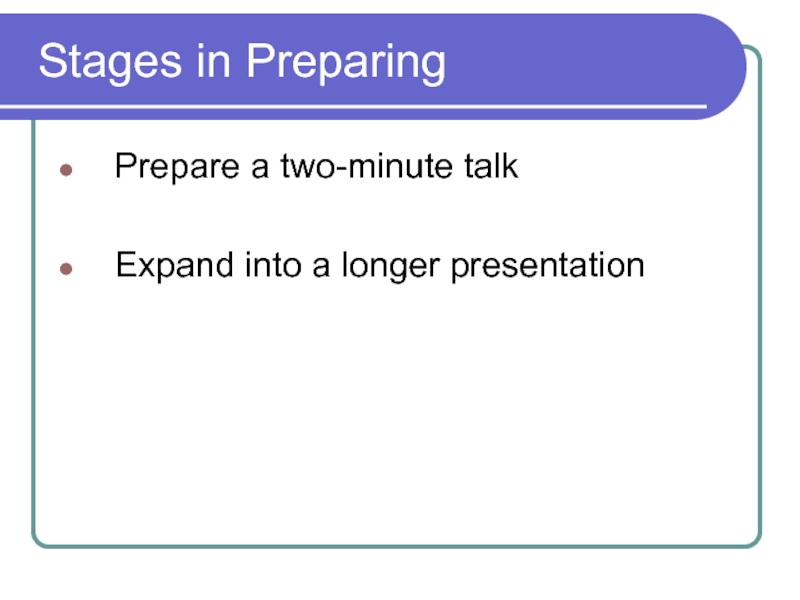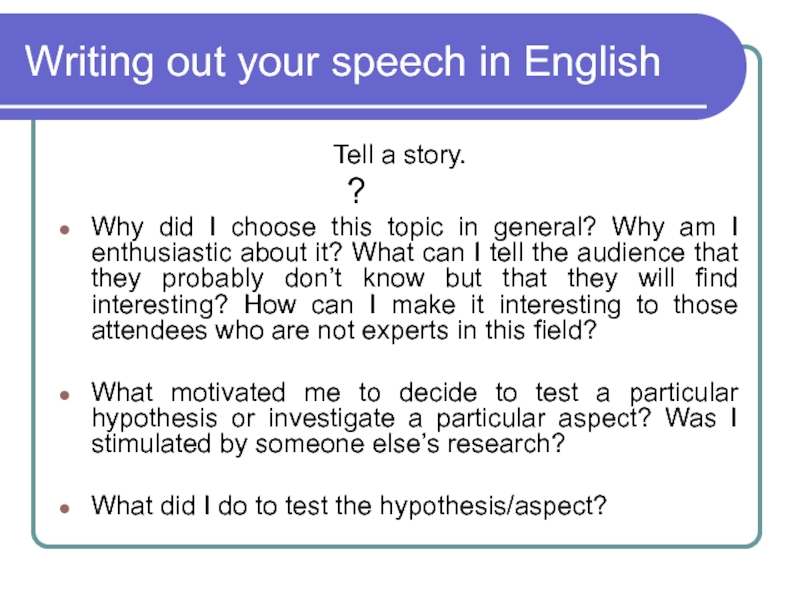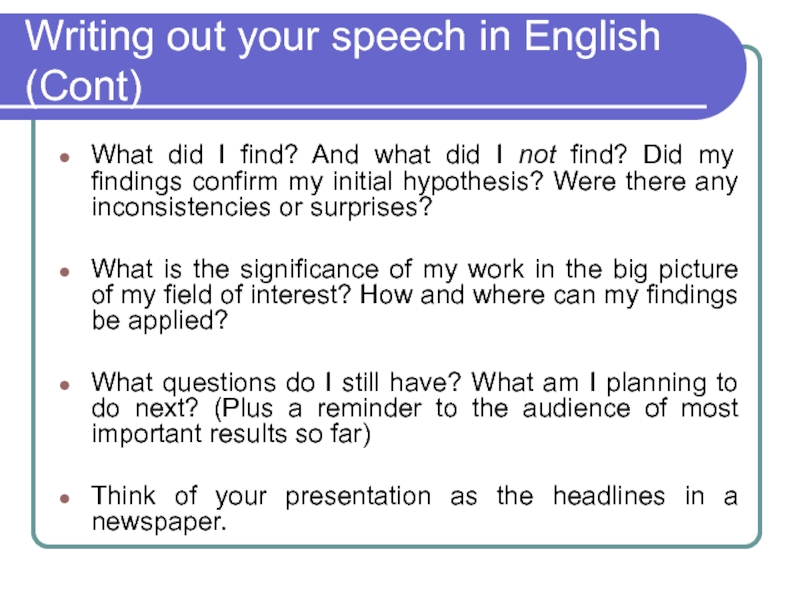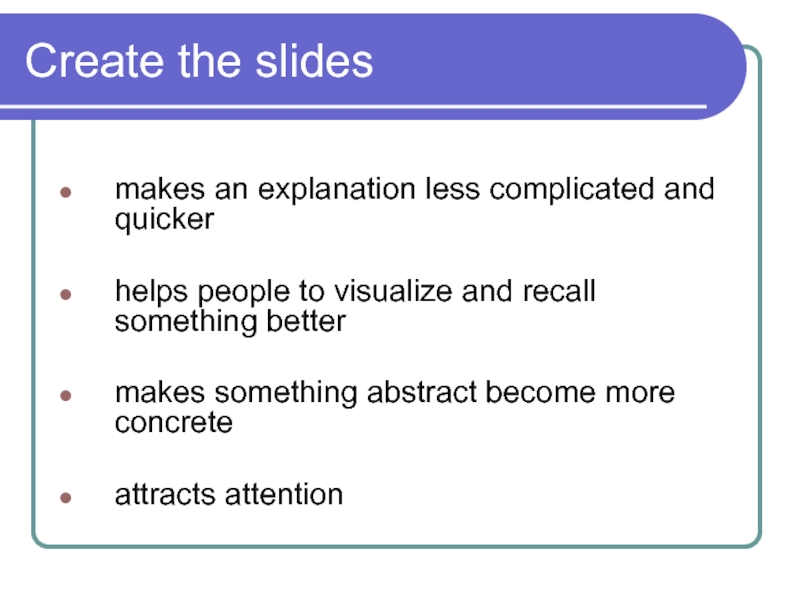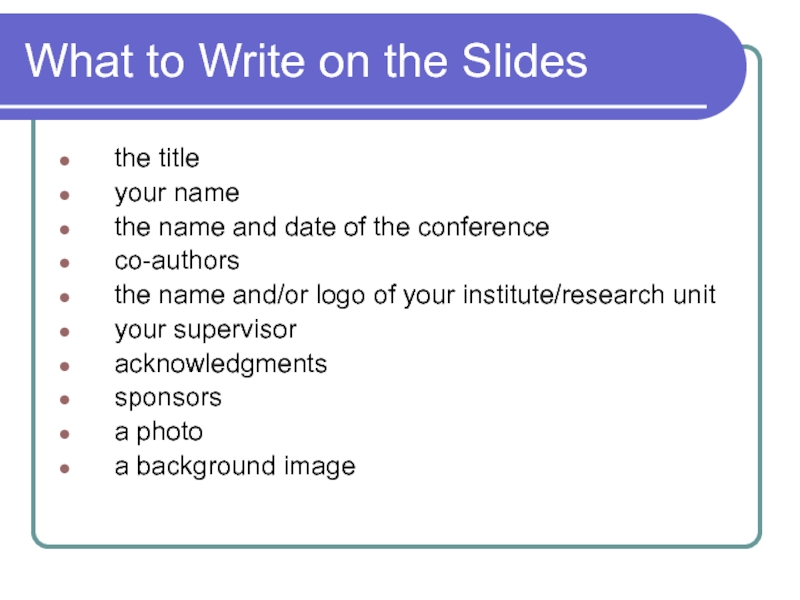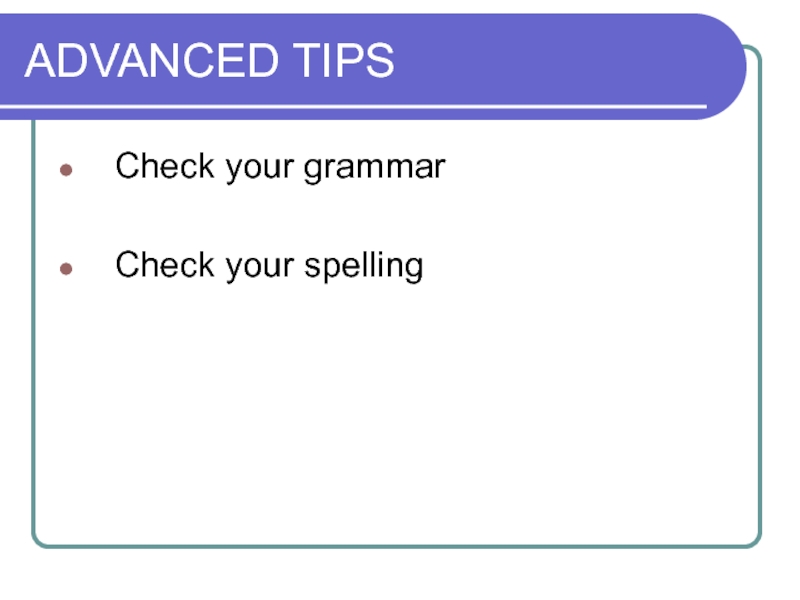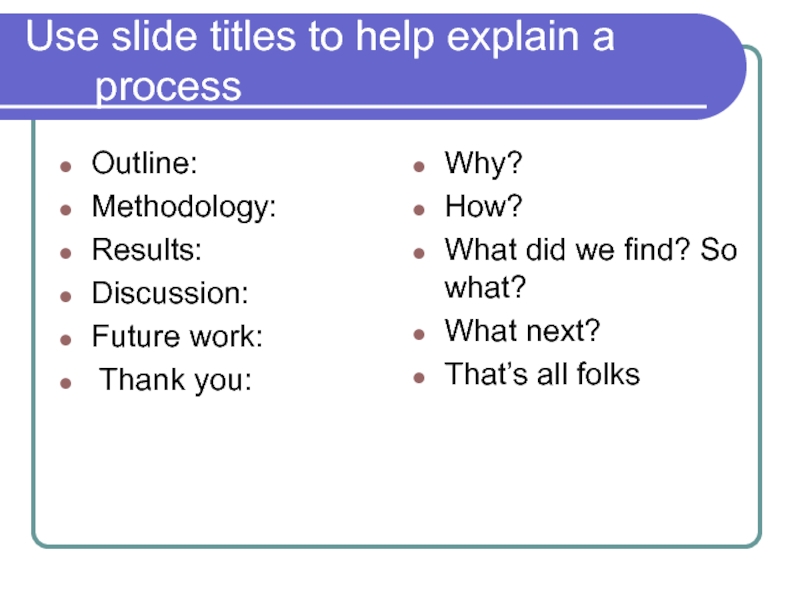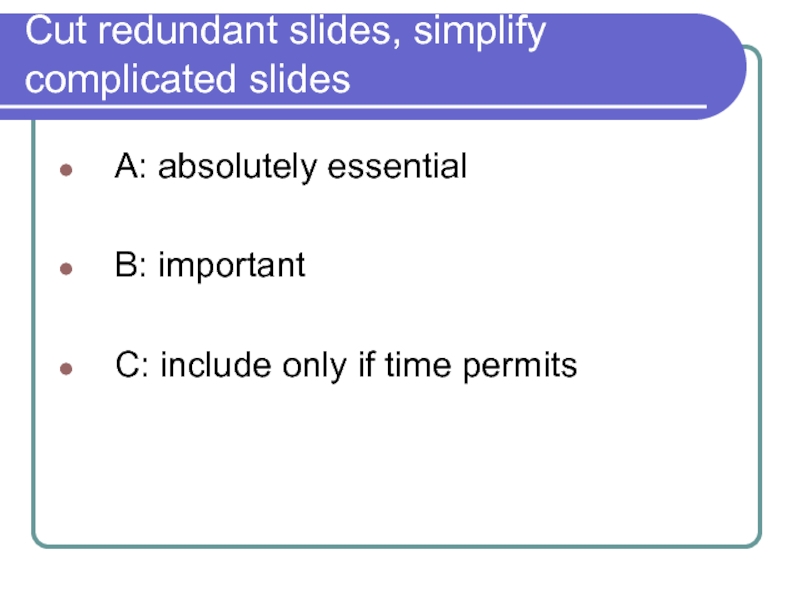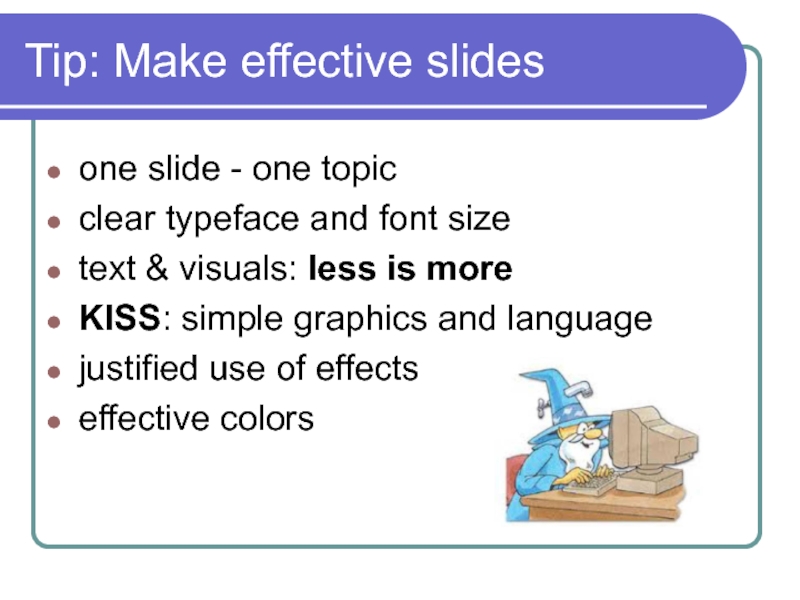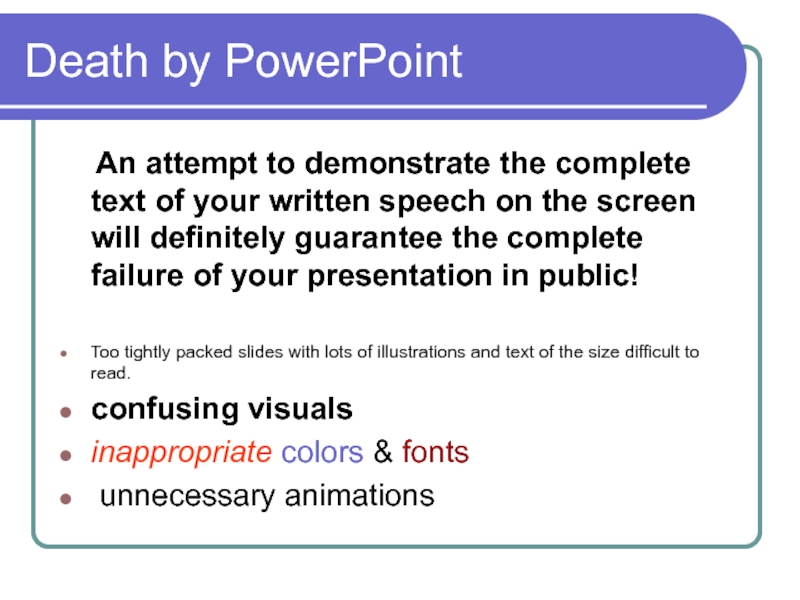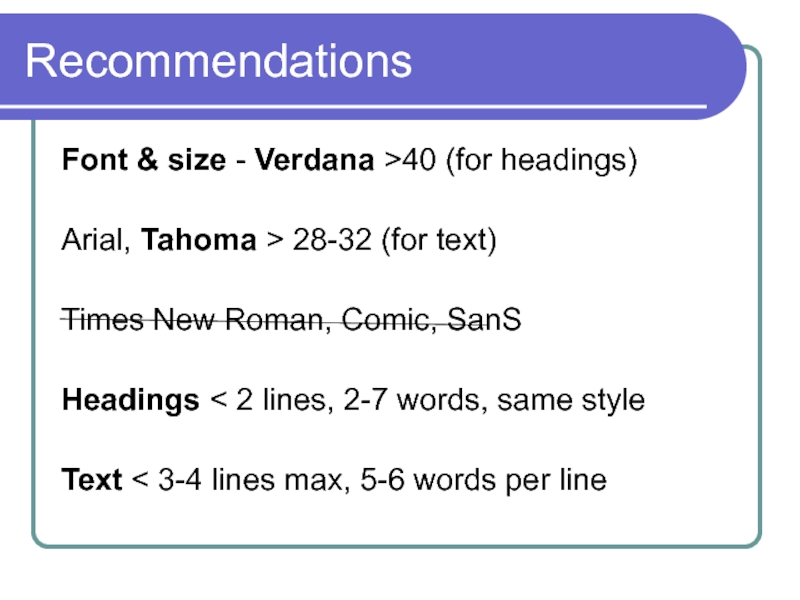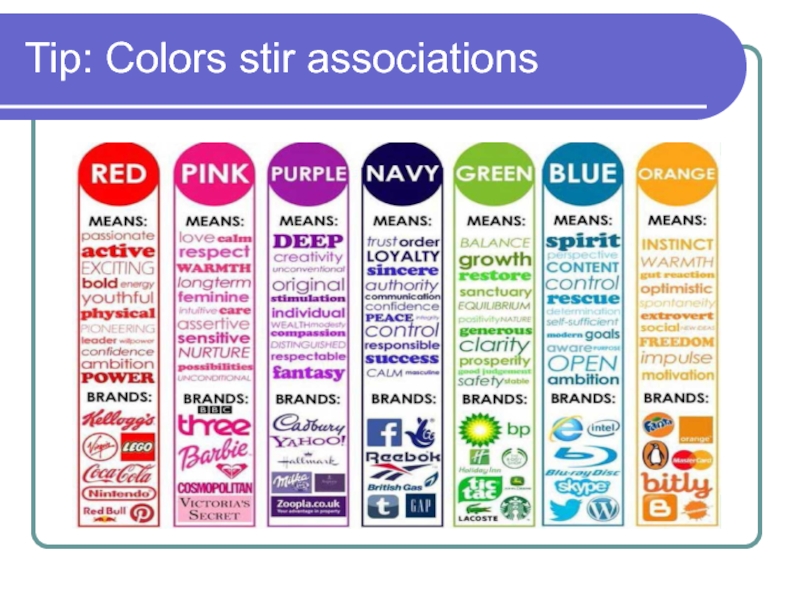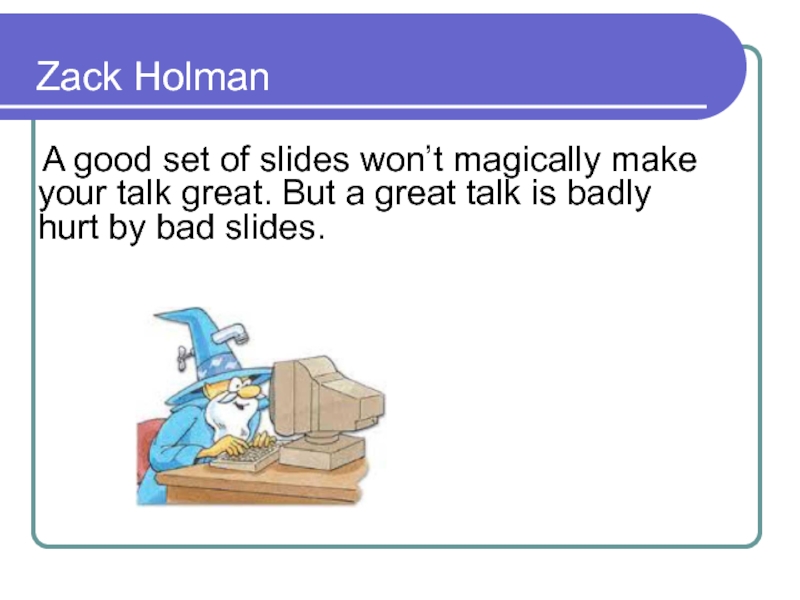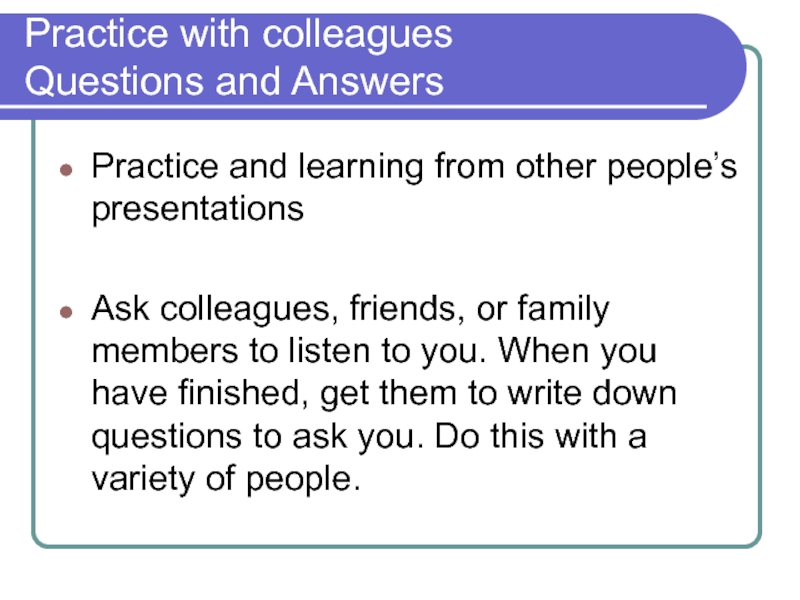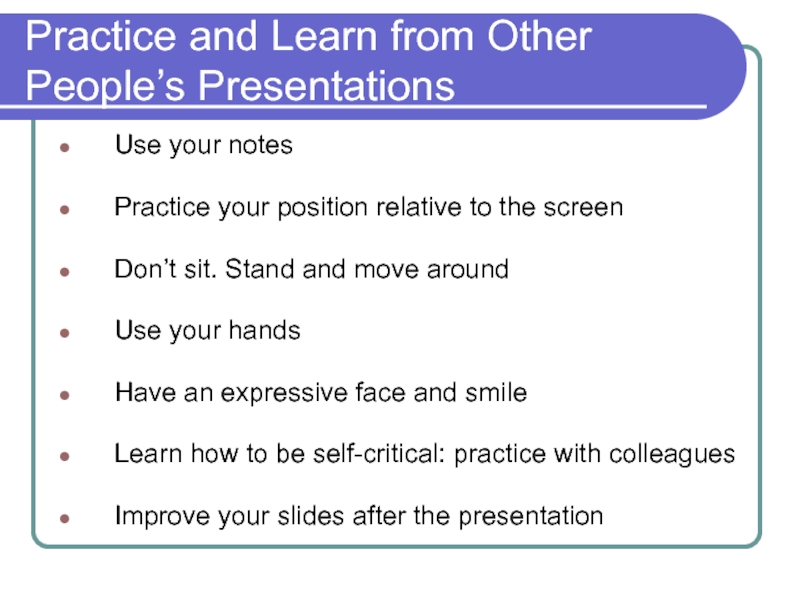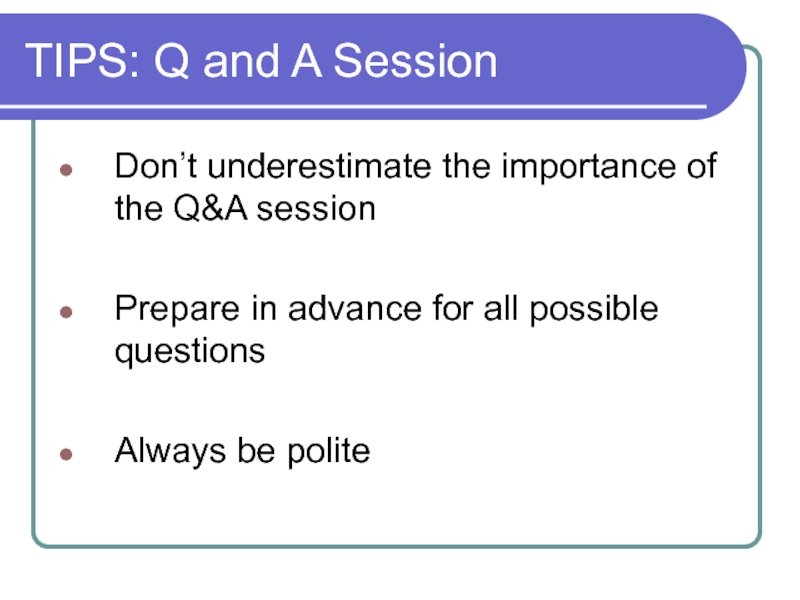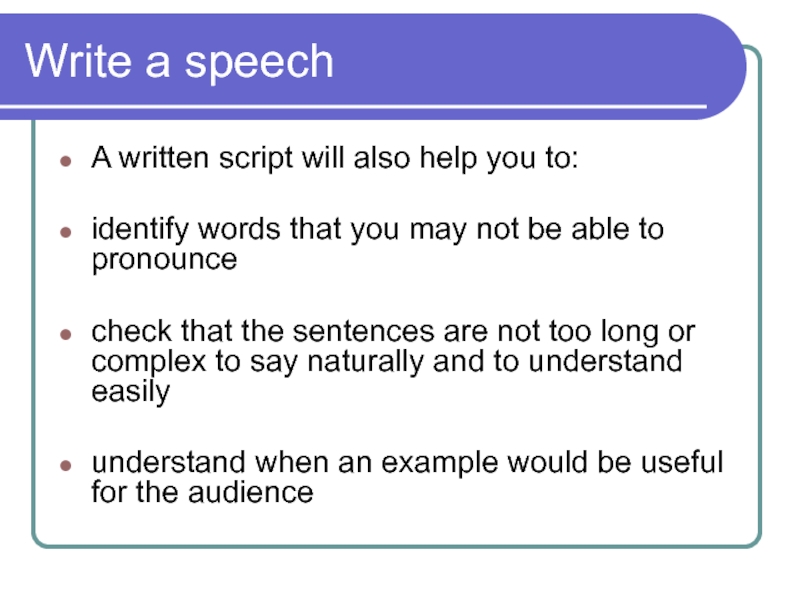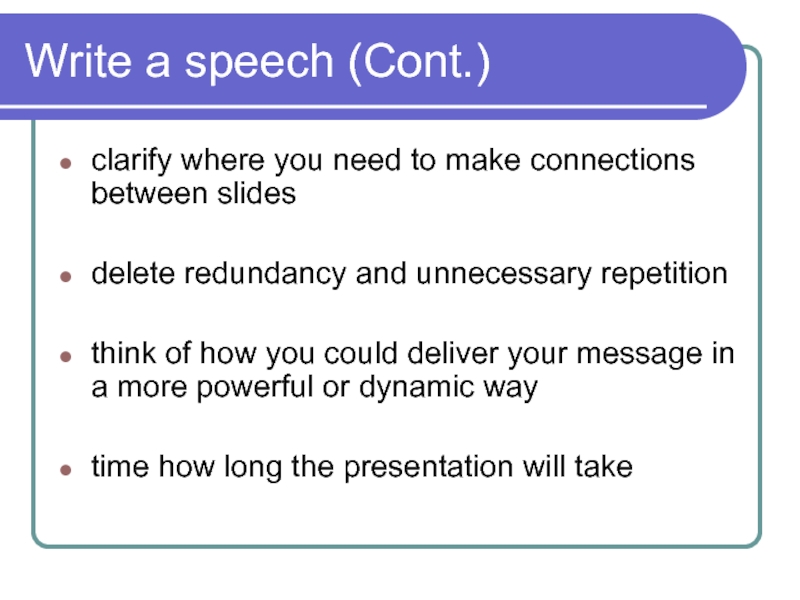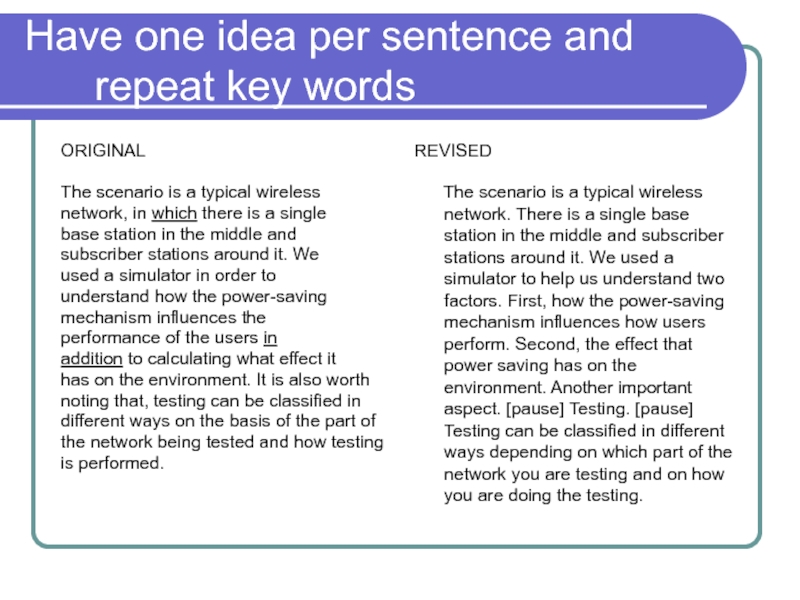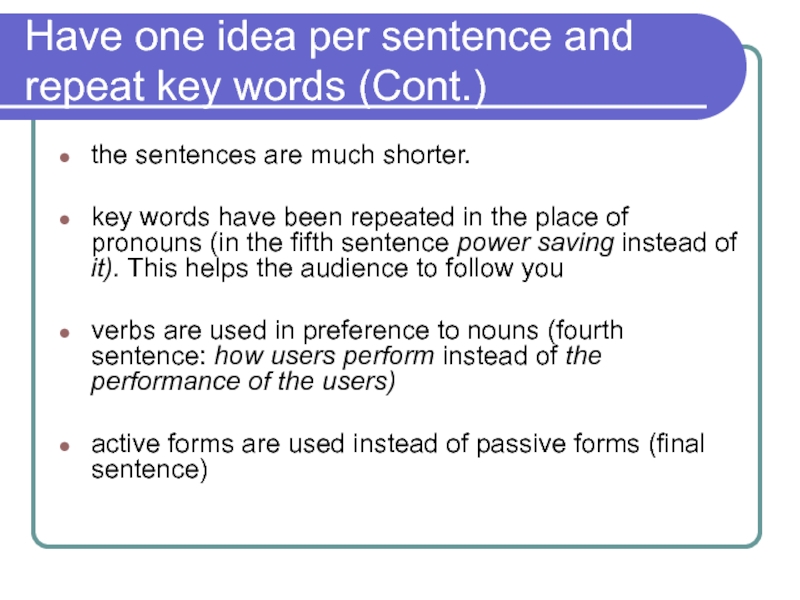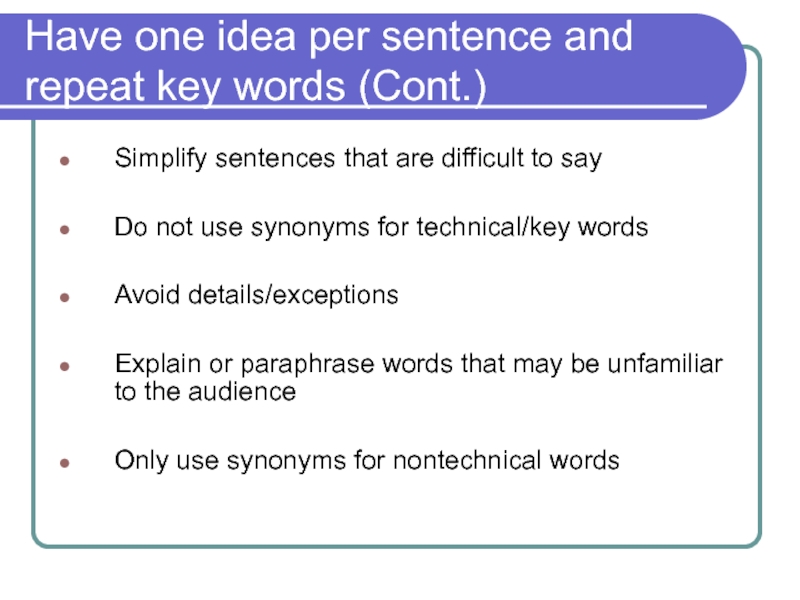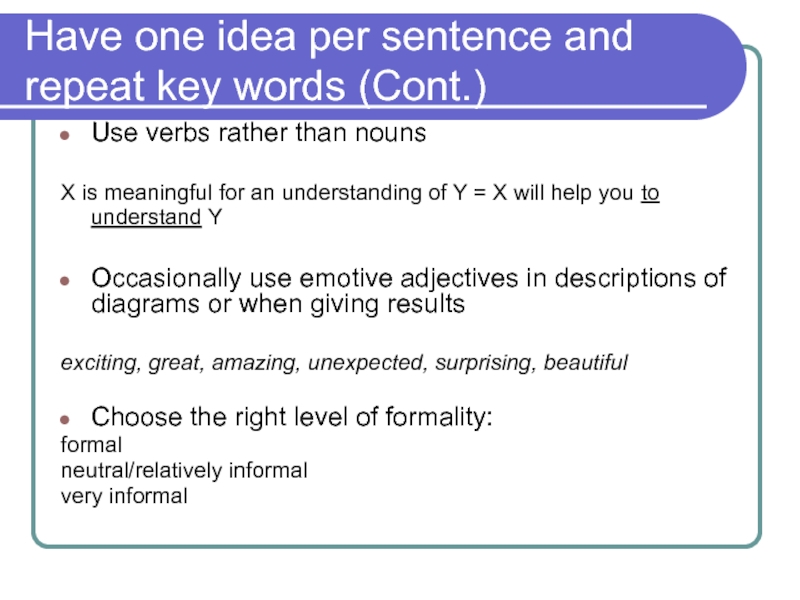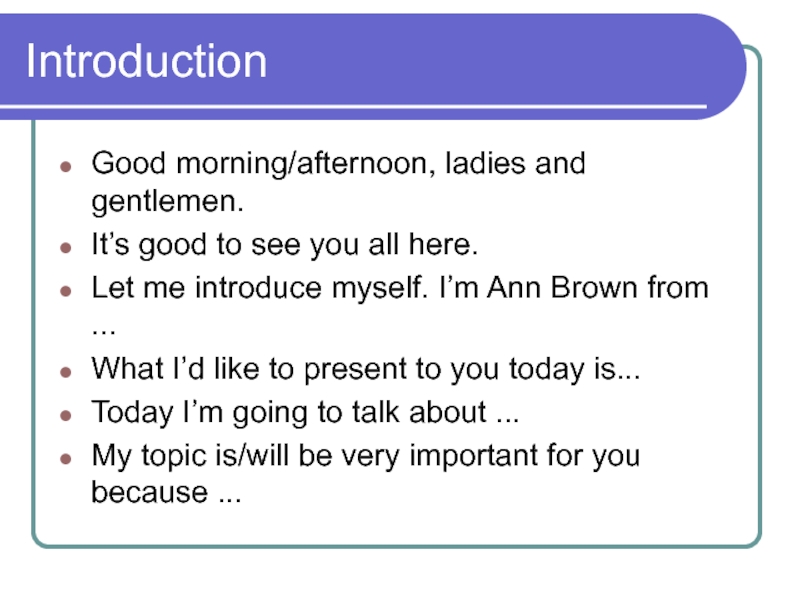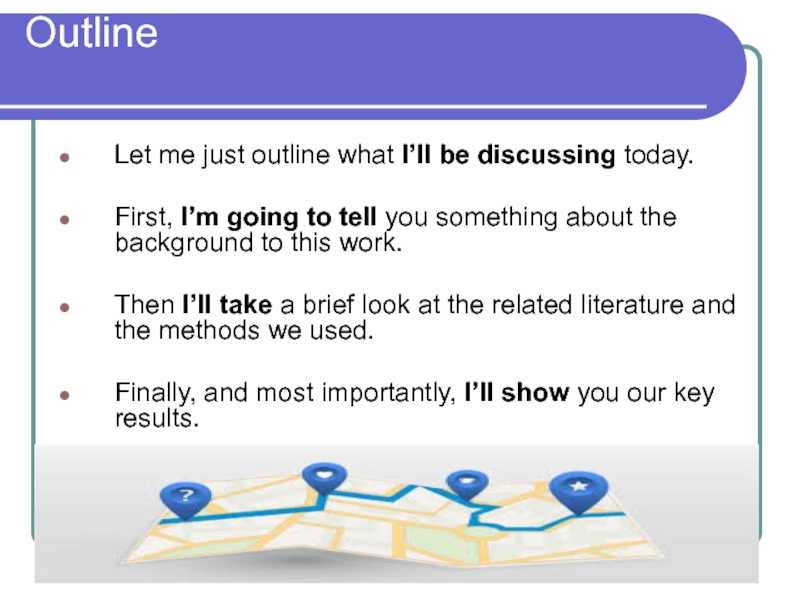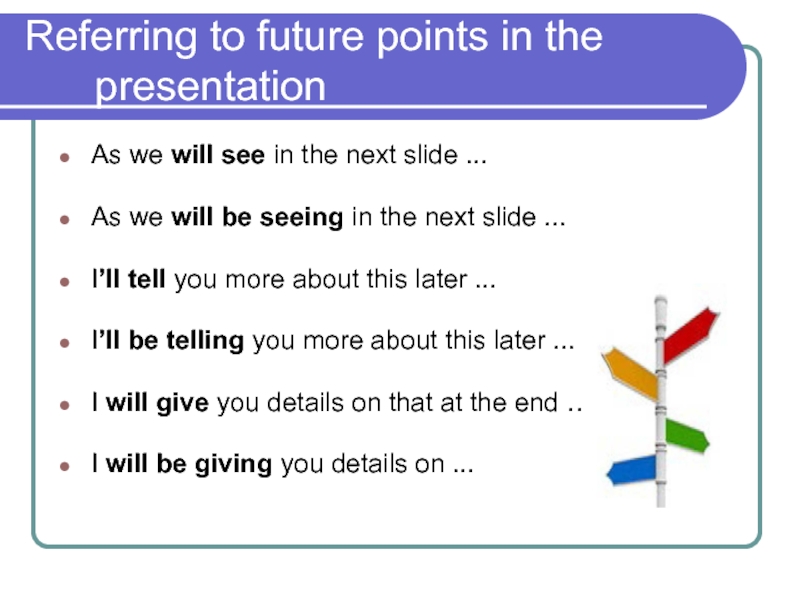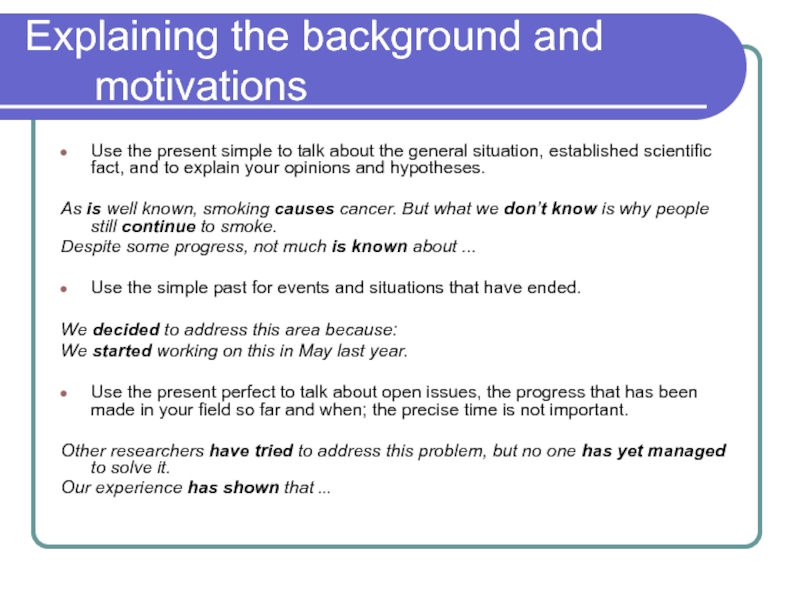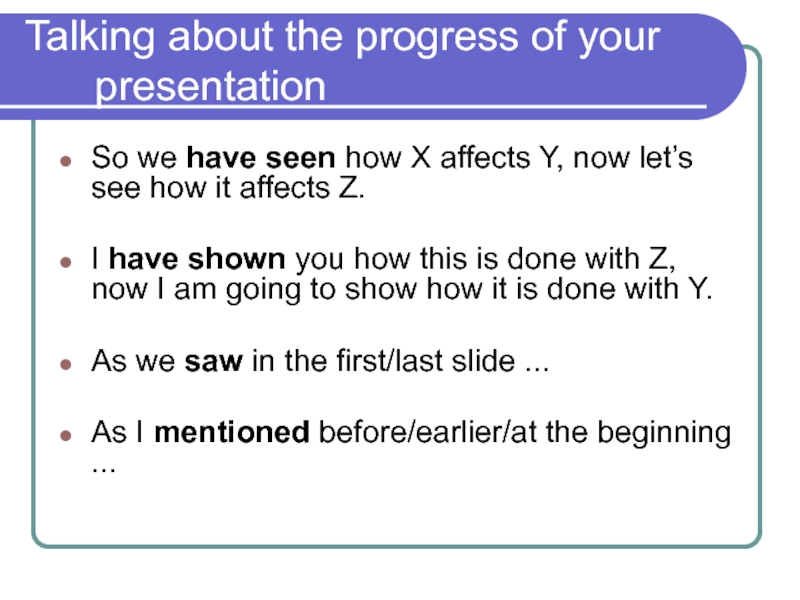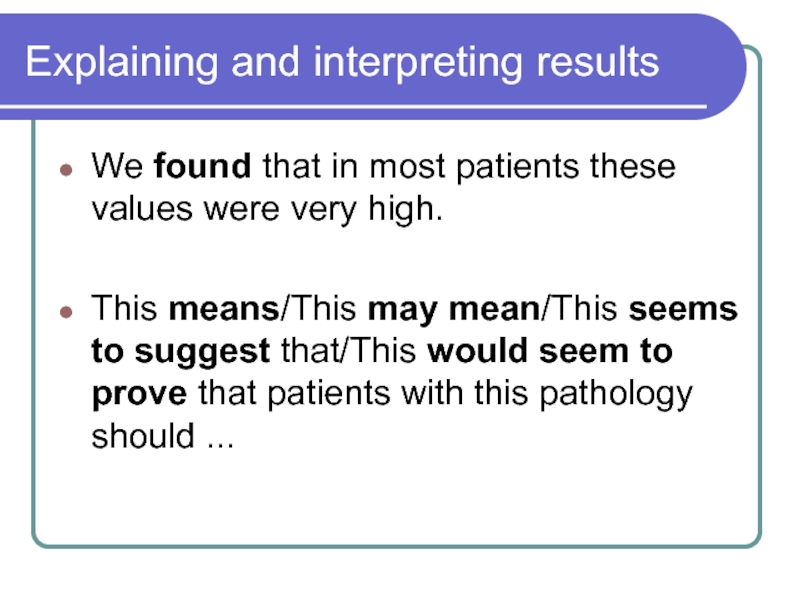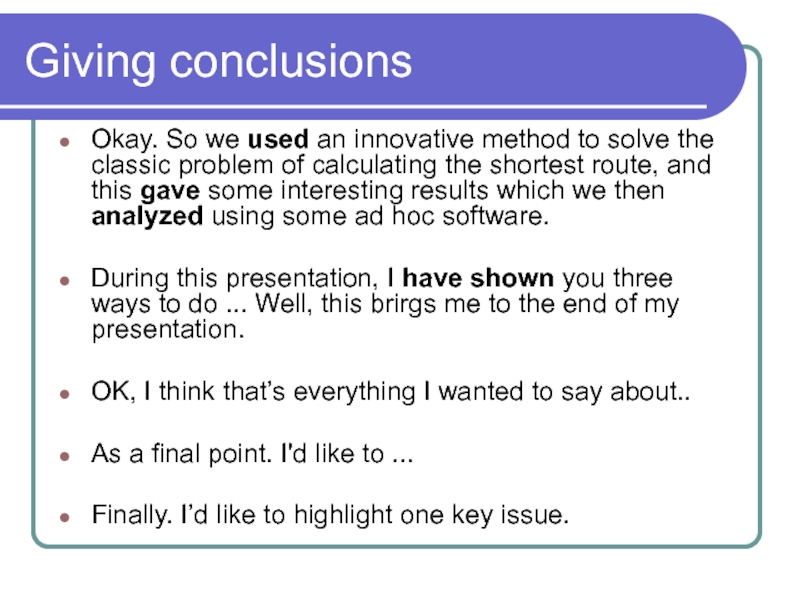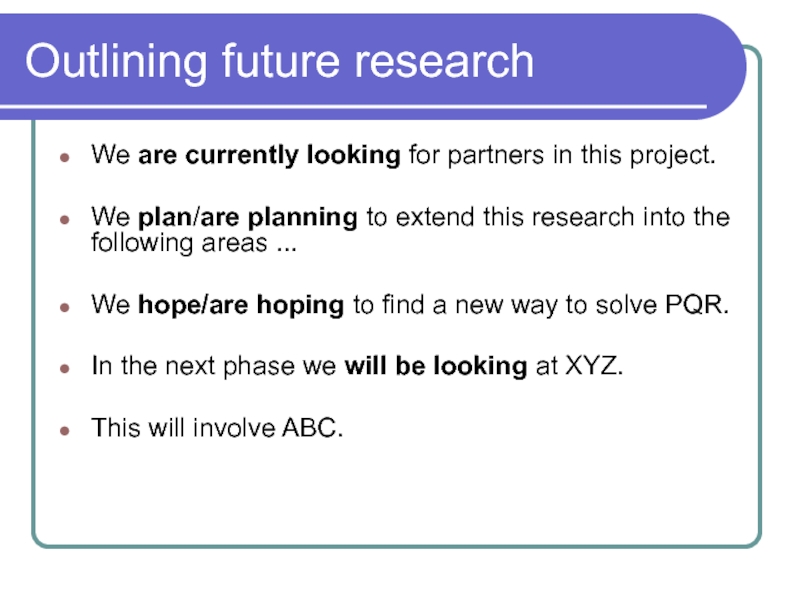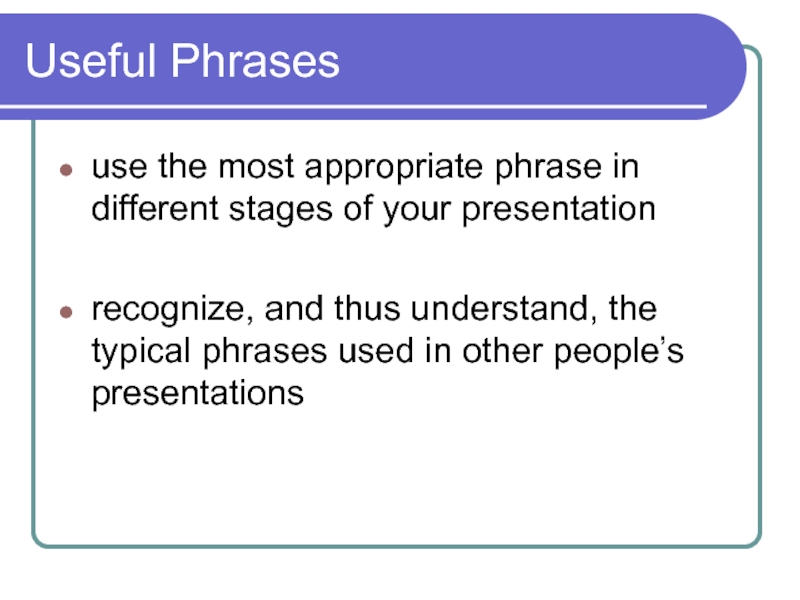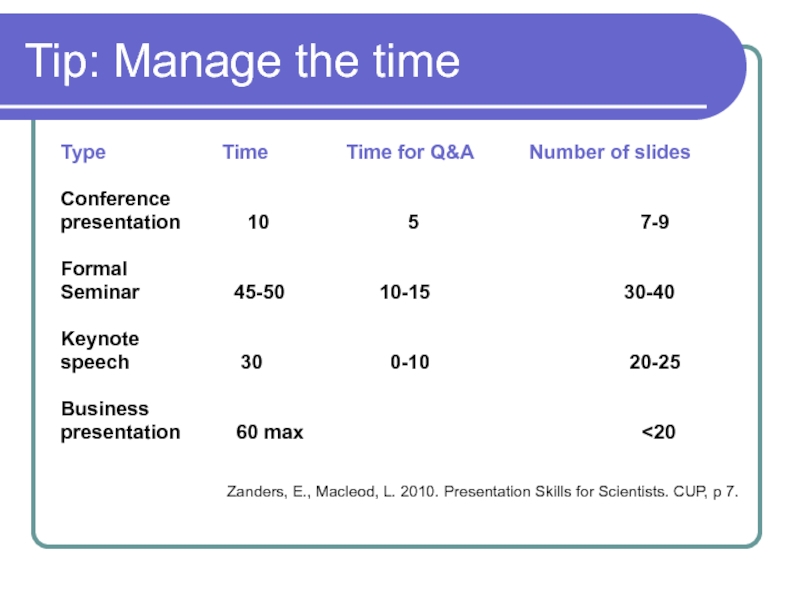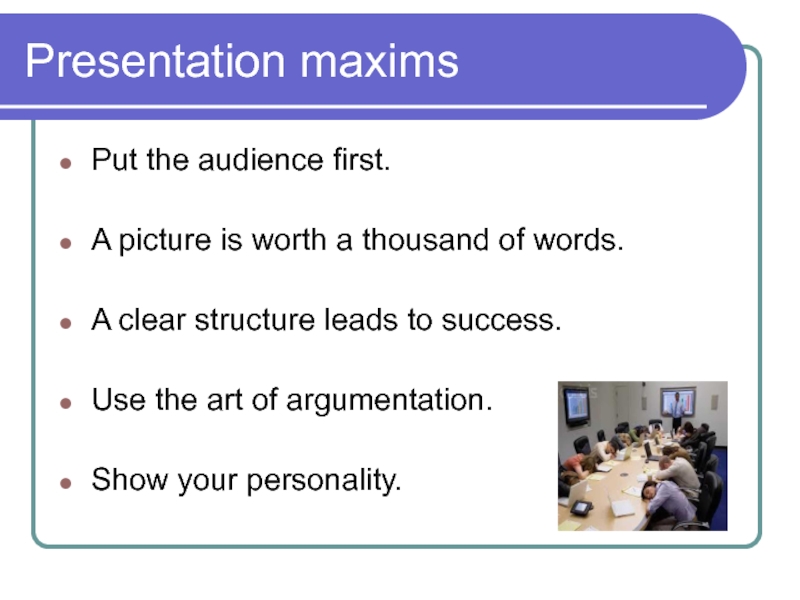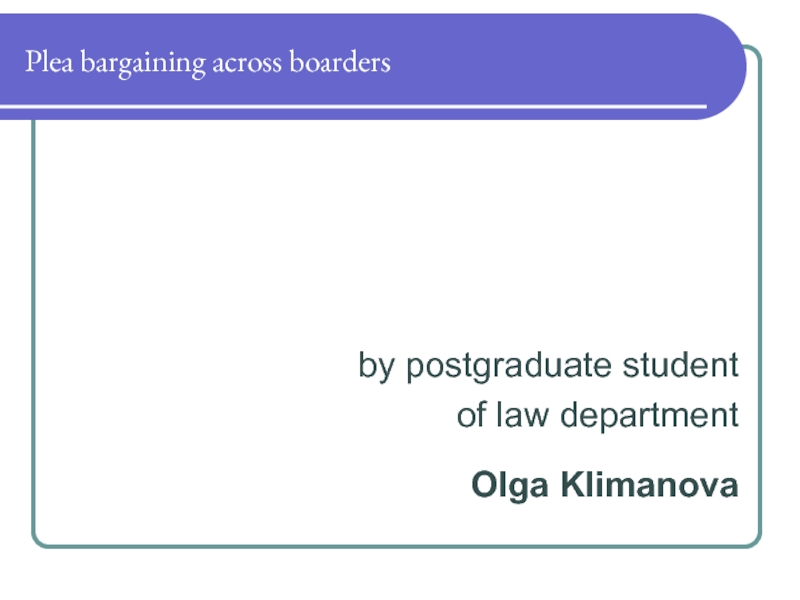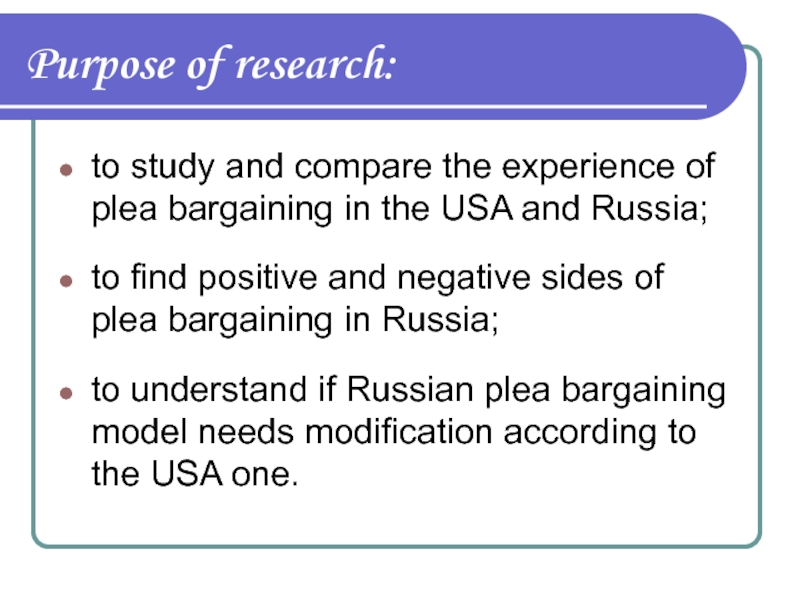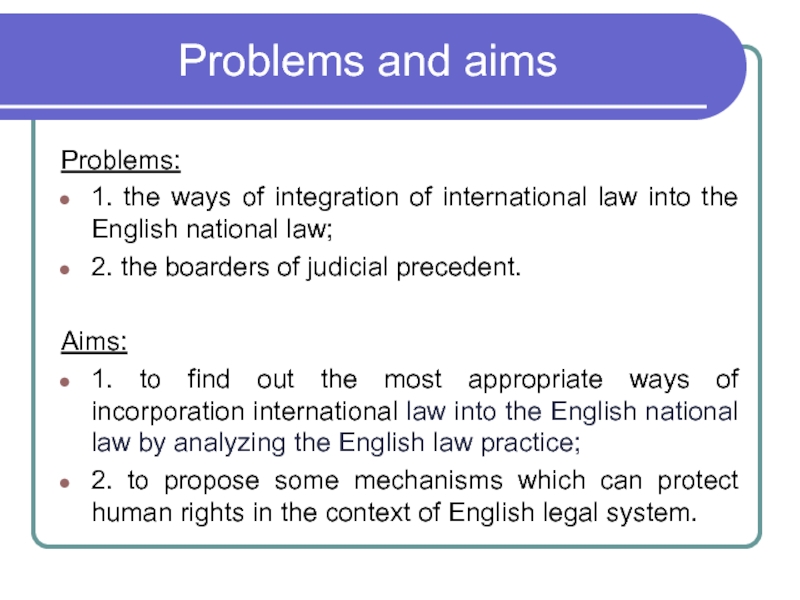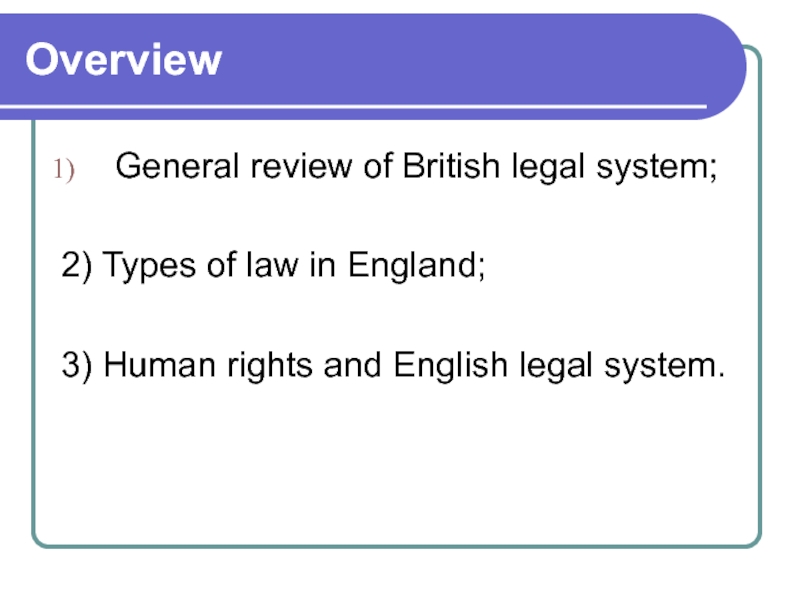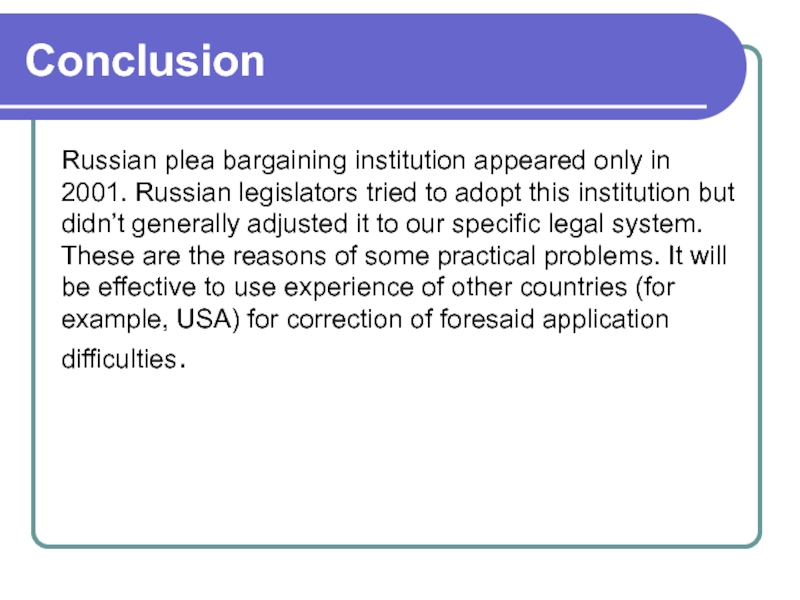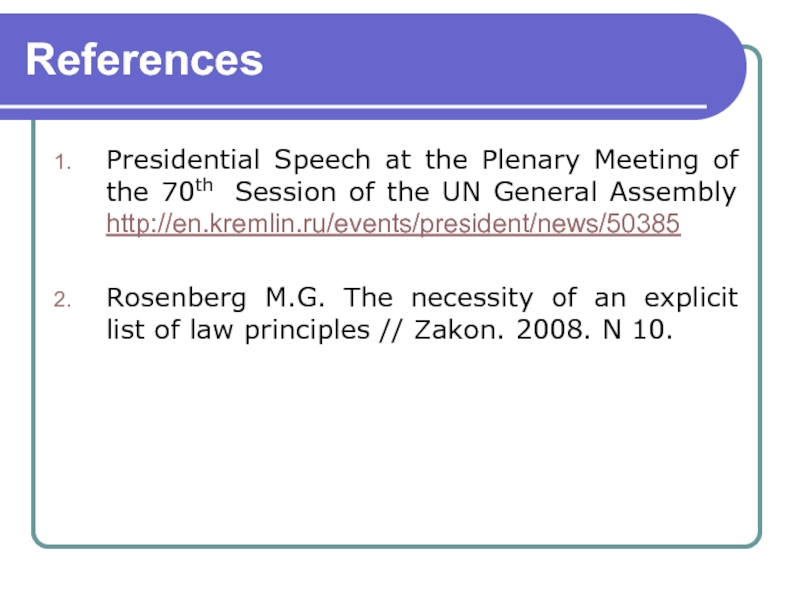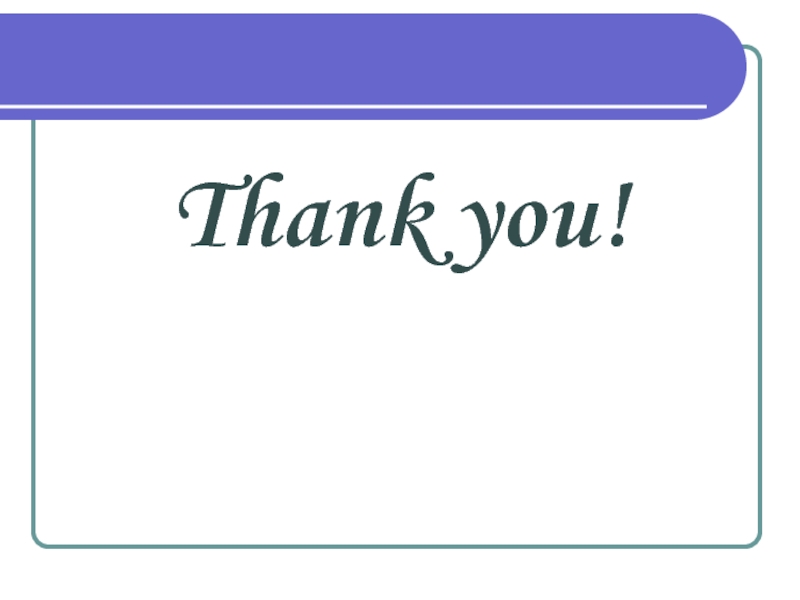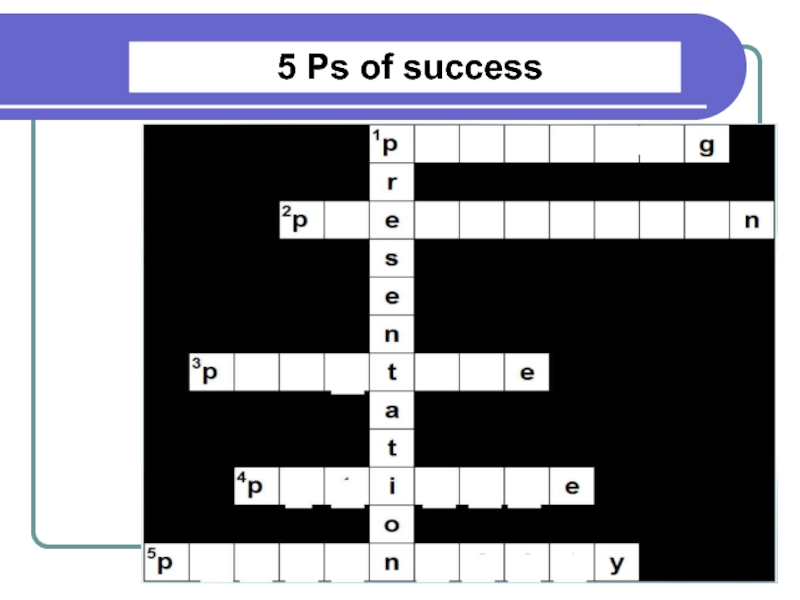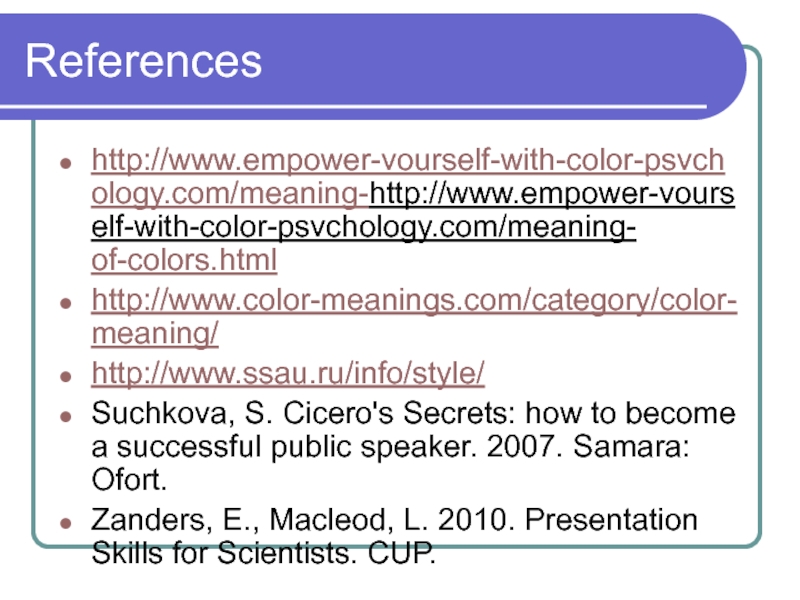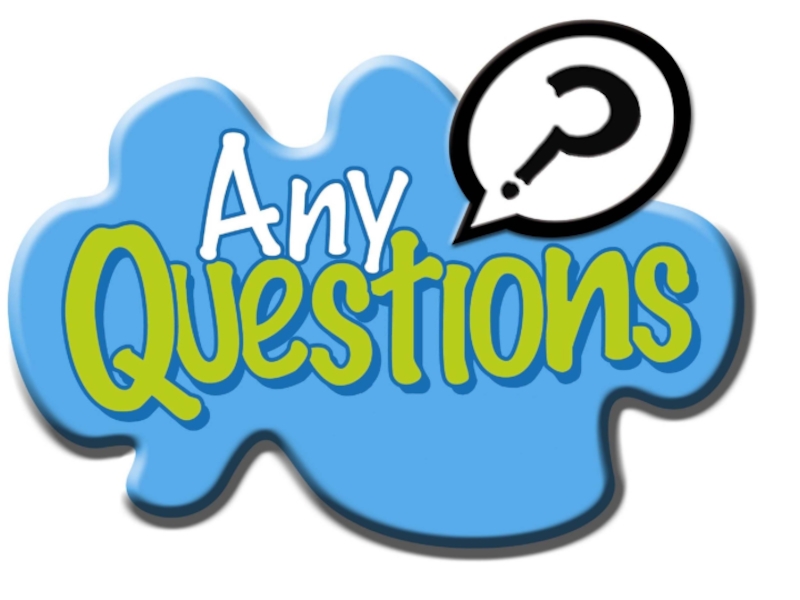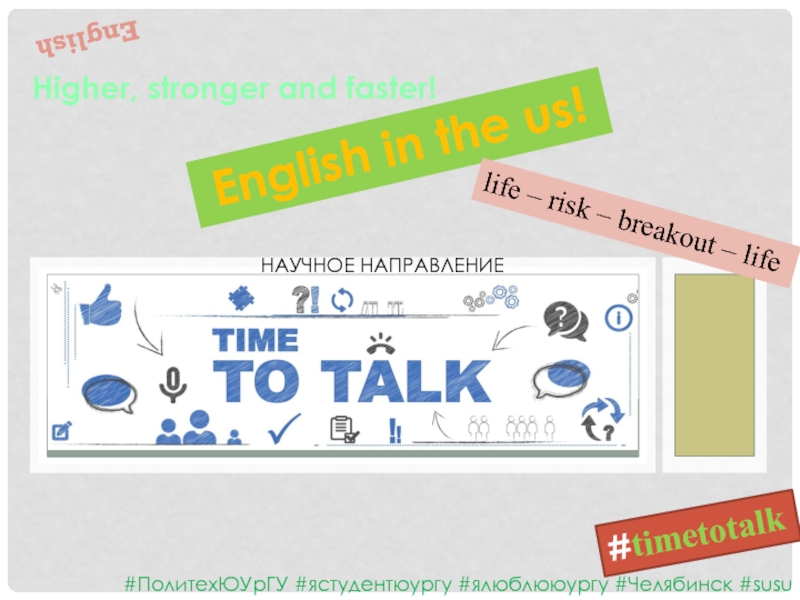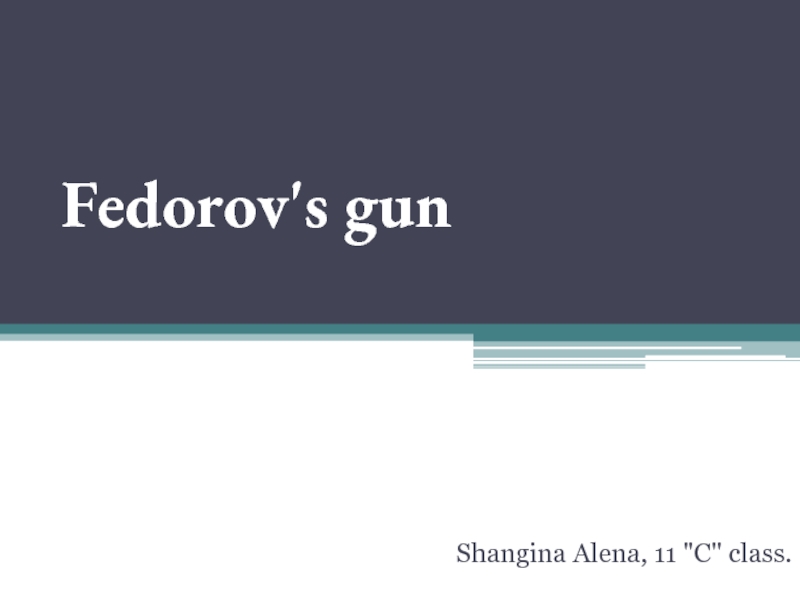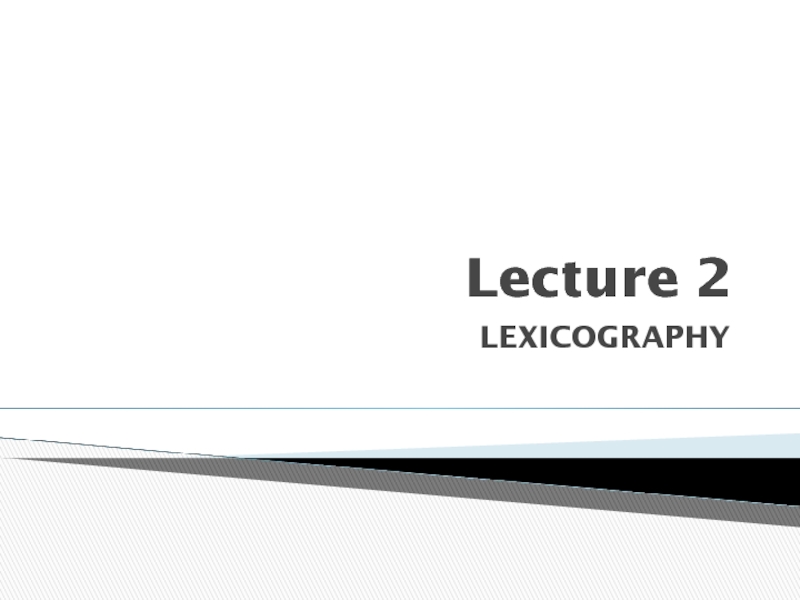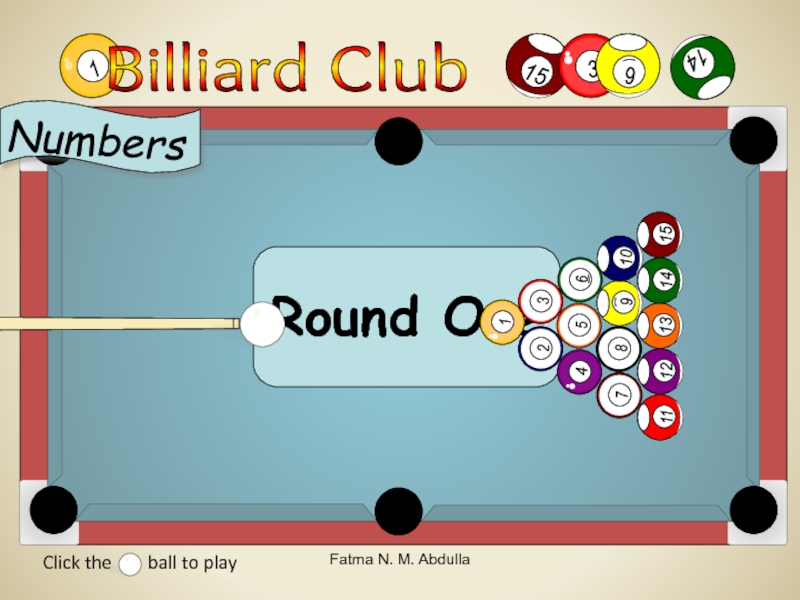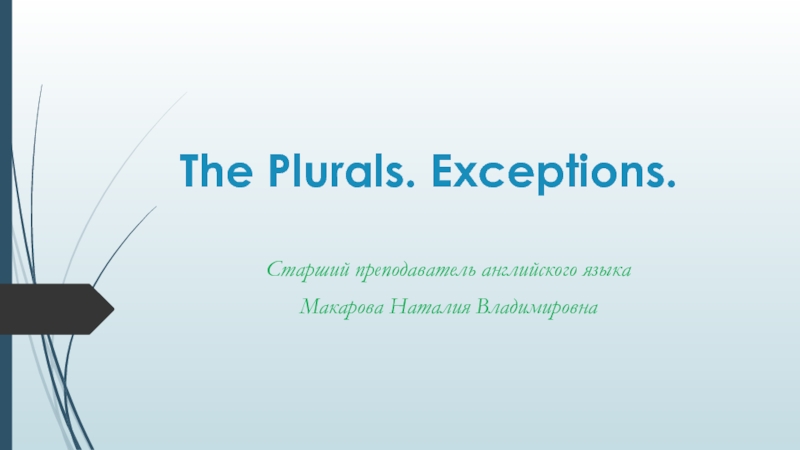- Главная
- Разное
- Дизайн
- Бизнес и предпринимательство
- Аналитика
- Образование
- Развлечения
- Красота и здоровье
- Финансы
- Государство
- Путешествия
- Спорт
- Недвижимость
- Армия
- Графика
- Культурология
- Еда и кулинария
- Лингвистика
- Английский язык
- Астрономия
- Алгебра
- Биология
- География
- Детские презентации
- Информатика
- История
- Литература
- Маркетинг
- Математика
- Медицина
- Менеджмент
- Музыка
- МХК
- Немецкий язык
- ОБЖ
- Обществознание
- Окружающий мир
- Педагогика
- Русский язык
- Технология
- Физика
- Философия
- Химия
- Шаблоны, картинки для презентаций
- Экология
- Экономика
- Юриспруденция
How to present in English презентация
Содержание
- 1. How to present in English
- 2. Why Should I Do a Presentation? to
- 3. What Kind of Presentations Do Audiences Like
- 4. What Kind of Presentations Do Audiences Like
- 5. What Kind of Presentations Do Audiences NOT
- 6. What Kind of Presentations Do Audiences NOT
- 7. Typical mistakes Long introduction Overcomplicated
- 8. Typical mistakes Overengineering Unrelated pictures
- 9. Typical mistakes Reading Poor articulation
- 10. What's the presentation sequence? A. Present the
- 11. Sequence Greet the audience (C) Introduce yourself
- 12. «The secret is:
- 13. What Constitutes a Professional Presentation? A “professional”
- 14. Tip: Grab your audience s attention smile eye contact imagery and anecdotes humor
- 15. ADVANCED TIPS (Cont.) Be aware of cultural
- 16. Handling Your Nerves Identify your fears
- 17. Tip: Demonstrate confidence thorough preparation first line
- 18. Tip: Add variety to your voice voice modulation emphasis powerful pauses tempo loudness
- 19. Tip: Tone may mean friendship or war
- 20. Tip: Show emotions One topic, one scheme
- 21. Tip: Pauses are powerful woman without her
- 22. TIPS (Cont.) Don’t speak too fast or
- 23. Find out about the potential audience
- 24. Give your presentation a structure Give
- 25. Identify your key points/messages what problem you
- 26. Stages in Preparing Prepare a two-minute talk Expand into a longer presentation
- 27. Writing out your speech in English Tell
- 28. Writing out your speech in English (Cont)
- 29. Create the slides makes an explanation
- 30. What to Write on the Slides the
- 31. ADVANCED TIPS Check your grammar Check your spelling
- 32. Use slide titles to help explain a
- 33. Cut redundant slides, simplify complicated slides
- 34. Tip: Make effective slides one slide -
- 36. Death by PowerPoint An attempt
- 37. Recommendations Font & size - Verdana >40
- 38. Tip: Colors stir associations
- 39. A good set
- 40. Practice with colleagues Questions and Answers
- 41. Practice and Learn from Other People’s Presentations
- 42. TIPS Understand the critical importance of correct
- 43. TIPS: Q and A Session Don’t underestimate
- 44. Write a speech A written script
- 45. Write a speech (Cont.) clarify where you
- 46. Have one idea per sentence and repeat
- 47. Have one idea per sentence and repeat
- 48. Have one idea per sentence and repeat
- 49. Have one idea per sentence and repeat
- 50. Introduction Good morning/afternoon, ladies and gentlemen.
- 51. Outline Let me just outline what
- 52. Referring to future points in the presentation
- 53. Explaining the background and motivations Use the
- 54. Talking about the progress of your presentation
- 55. Explaining and interpreting results We found that
- 56. Giving conclusions Okay. So we used an
- 57. Outlining future research We are currently looking
- 58. Useful Phrases use the most appropriate phrase
- 59. Tip: Manage the time Type
- 60. Presentation maxims Put the audience first.
- 61. Plea bargaining across boarders
- 62. Purpose of research: to study and compare
- 63. Problems: 1. the ways of integration
- 64. Overview General review of British
- 65. Russian plea bargaining institution appeared only in
- 66. References Presidential Speech at the
- 67. Thank you!
- 68. 5 Ps of success
- 69. References http://www.empower-vourself-with-color-psvchology.com/meaning-http://www.empower-vourself-with-color-psvchology.com/meaning- of-colors.html http://www.color-meanings.com/category/color-meaning/ http://www.ssau.ru/info/style/ Suchkova, S.
Слайд 2Why Should I Do a Presentation?
to gain visibility and inform others
to increase your chances of getting feedback on your work
to establish new contacts.
to get more funds.
Слайд 3What Kind of Presentations Do Audiences Like to See?
are professional and
look like they were prepared specifically for us and make it immediately clear why we should be interested
have clear slides, with minimal detail and helpful and/or entertaining images
Слайд 4What Kind of Presentations Do Audiences Like to See? (cont.)
tell us
are delivered in a friendly, enthusiastic, and relatively informal way
entertain us and interact with us
Слайд 5What Kind of Presentations Do Audiences NOT Like to See?
has clearly
has no clear introduction, a confused structure, and no conclusions
appears to be talking to himself/herself rather than engaging with the audience
reads the slides
Слайд 6What Kind of Presentations Do Audiences NOT Like to See? (cont.)
has
relies on animations
is too technical, too detailed
speaks too fast, speaks with a monotone, speaks for too long
shows little interest in his/her topic
Слайд 7Typical mistakes
Long introduction
Overcomplicated
content
Unsupported claims
‘I’ll tell you everything I
Слайд 8Typical mistakes
Overengineering
Unrelated pictures
Very busy patterns
Dazzling effects
Bad colors and fonts
’I want it
Слайд 9Typical mistakes
Reading
Poor articulation
No interaction
No voice variety
Distracting gestures
‘I am so nervous!’
Слайд 10What's the presentation sequence?
A. Present the speech main body
B. Handle questions
C.
D. Summarize the main points
E. Introduce yourself
F. Have a strong end
G. Introduce the topic and objectives
H. Outline the presentation structure
I. Thank the audience
J. Thank the organizers
K. Grab the audience attention
Слайд 11Sequence
Greet the audience (C)
Introduce yourself (E)
Thank the organizers (J)
Grab the audience
Introduce the topic and objectives (G)
Outline the presentation structure (H)
Present the speech main body (A)
Summarize the main points (D)
Have a strong end (F)
Handle questions (B)
Thank the audience (I)
Слайд 12 «The secret is:
have a good beginning,
and
keep them as close together as possible».
George Burns, actor
Слайд 13What Constitutes a Professional Presentation?
A “professional” presentation is one where you
Grab your audience s attention
The important thing is to be relaxed.
Слайд 16Handling Your Nerves
Identify your fears
Don’t focus on your English
Have a positive
Organize your time
Learn relaxation techniques
Do some physical exercises:
- breathe in deeply
- relax/warm your neck and shoulder muscles
- exercise your jaw
Слайд 17Tip: Demonstrate confidence
thorough preparation
first line memorized
good timing
control of body and
powerful
Слайд 19Tip: Tone may mean friendship or war
business... (but I’m not really
business! (you MUST go there)
business! (Hurray! I’m going!)
business? (Me? No, I can’t)
business? (Will you agree to present together?)
business! (Really! It’s true!)
business (What? I can’t believe!)
business (Why him? Not me?!)
business (and so what?)
Слайд 20Tip: Show emotions
One topic, one scheme audience’s happy, you’ll win. (joyful)
Five
One color, two fonts - That’s right, not wrong. (surprised)
Слайд 21Tip: Pauses are powerful
woman without her man is a savage
let’s eat
panda eats shoots and leaves
what do you call this love
Слайд 22TIPS (Cont.)
Don’t speak too fast or too much
Use stress to highlight
Vary your voice and speed
Sound interested
Слайд 23Find out about the potential audience
It is very useful to find
If you are too general you will bore the experts.
Need to find the right balance
Слайд 24Give your presentation a structure
Give your presentation a structure
Divide your speech/notes
Introduction
Methodology
Results
Discussion
Conclusions
Слайд 25Identify your key points/messages
what problem you wanted to resolve/investigate and why
how you did it (your methodology)
what success you had (your results)
Слайд 27Writing out your speech in English
Tell a story.
Why did I choose this topic in general? Why am I enthusiastic about it? What can I tell the audience that they probably don’t know but that they will find interesting? How can I make it interesting to those attendees who are not experts in this field?
What motivated me to decide to test a particular hypothesis or investigate a particular aspect? Was I stimulated by someone else’s research?
What did I do to test the hypothesis/aspect?
Слайд 28Writing out your speech in English (Cont)
What did I find? And
What is the significance of my work in the big picture of my field of interest? How and where can my findings be applied?
What questions do I still have? What am I planning to do next? (Plus a reminder to the audience of most important results so far)
Think of your presentation as the headlines in a newspaper.
Слайд 29Create the slides
makes an explanation less complicated and quicker
helps people to
makes something abstract become more concrete
attracts attention
Слайд 30What to Write on the Slides
the title
your name
the name and date
co-authors
the name and/or logo of your institute/research unit
your supervisor
acknowledgments
sponsors
a photo
a background image
Слайд 32Use slide titles to help explain a process
Outline:
Methodology:
Results:
Discussion:
Future work:
Why?
How?
What did we find? So what?
What next?
That’s all folks
Слайд 33
Cut redundant slides, simplify complicated slides
A: absolutely essential
B: important
C: include
Слайд 34Tip: Make effective slides
one slide - one topic
clear typeface and font
text & visuals: less is more
KISS: simple graphics and language
justified use of effects
effective colors
Слайд 36Death by PowerPoint
An attempt to demonstrate the complete text
Too tightly packed slides with lots of illustrations and text of the size difficult to read.
confusing visuals
inappropriate colors & fonts
unnecessary animations
Слайд 37Recommendations
Font & size - Verdana >40 (for headings)
Arial, Tahoma > 28-32
Times New Roman, Comic, SanS
Headings < 2 lines, 2-7 words, same style
Text < 3-4 lines max, 5-6 words per line
Слайд 39 A good set of slides won’t magically
Zack Holman
Слайд 40
Practice with colleagues
Questions and Answers
Practice and learning from other people’s presentations
Ask colleagues, friends, or family members to listen to you. When you have finished, get them to write down questions to ask you. Do this with a variety of people.
Слайд 41Practice and Learn from Other People’s Presentations
Use your notes
Practice your position
Don’t sit. Stand and move around
Use your hands
Have an expressive face and smile
Learn how to be self-critical: practice with colleagues
Improve your slides after the presentation
Слайд 42TIPS
Understand the critical importance of correct pronunciation
Learn any irregular pronunciations
Be very
Practice the pronunciation of key words that have no synonyms
Enunciate numbers very clearly
Use your normal speaking voice
Слайд 43TIPS: Q and A Session
Don’t underestimate the importance of the Q&A
Prepare in advance for all possible questions
Always be polite
Слайд 44Write a speech
A written script will also help you to:
identify
check that the sentences are not too long or complex to say naturally and to understand easily
understand when an example would be useful for the audience
Слайд 45Write a speech (Cont.)
clarify where you need to make connections between
delete redundancy and unnecessary repetition
think of how you could deliver your message in a more powerful or dynamic way
time how long the presentation will take
Слайд 46Have one idea per sentence and repeat key words
ORIGINAL
The scenario is
network, in which there is a single
base station in the middle and
subscriber stations around it. We
used a simulator in order to
understand how the power-saving
mechanism influences the
performance of the users in
addition to calculating what effect it
has on the environment. It is also worth
noting that, testing can be classified in
different ways on the basis of the part of
the network being tested and how testing
is performed.
REVISED
The scenario is a typical wireless network. There is a single base station in the middle and subscriber stations around it. We used a simulator to help us understand two factors. First, how the power-saving mechanism influences how users perform. Second, the effect that power saving has on the environment. Another important aspect. [pause] Testing. [pause] Testing can be classified in different ways depending on which part of the network you are testing and on how you are doing the testing.
Слайд 47Have one idea per sentence and repeat key words (Cont.)
the sentences
key words have been repeated in the place of pronouns (in the fifth sentence power saving instead of it). This helps the audience to follow you
verbs are used in preference to nouns (fourth sentence: how users perform instead of the performance of the users)
active forms are used instead of passive forms (final sentence)
Слайд 48Have one idea per sentence and repeat key words (Cont.)
Simplify sentences
Do not use synonyms for technical/key words
Avoid details/exceptions
Explain or paraphrase words that may be unfamiliar to the audience
Only use synonyms for nontechnical words
Слайд 49Have one idea per sentence and repeat key words (Cont.)
Use verbs
X is meaningful for an understanding of Y = X will help you to understand Y
Occasionally use emotive adjectives in descriptions of diagrams or when giving results
exciting, great, amazing, unexpected, surprising, beautiful
Choose the right level of formality:
formal
neutral/relatively informal
very informal
Слайд 50Introduction
Good morning/afternoon, ladies and gentlemen.
It’s good to see you all
Let me introduce myself. I’m Ann Brown from ...
What I’d like to present to you today is...
Today I’m going to talk about ...
My topic is/will be very important for you because ...
Слайд 51Outline
Let me just outline what I’ll be discussing today.
First, I’m going
Then I’ll take a brief look at the related literature and the methods we used.
Finally, and most importantly, I’ll show you our key results.
Слайд 52Referring to future points in the presentation
As we will see in
As we will be seeing in the next slide ...
I’ll tell you more about this later ...
I’ll be telling you more about this later ...
I will give you details on that at the end …
I will be giving you details on ...
Слайд 53Explaining the background and motivations
Use the present simple to talk about
As is well known, smoking causes cancer. But what we don’t know is why people still continue to smoke.
Despite some progress, not much is known about ...
Use the simple past for events and situations that have ended.
We decided to address this area because:
We started working on this in May last year.
Use the present perfect to talk about open issues, the progress that has been made in your field so far and when; the precise time is not important.
Other researchers have tried to address this problem, but no one has yet managed to solve it.
Our experience has shown that ...
Слайд 54Talking about the progress of your presentation
So we have seen how
I have shown you how this is done with Z, now I am going to show how it is done with Y.
As we saw in the first/last slide ...
As I mentioned before/earlier/at the beginning ...
Слайд 55Explaining and interpreting results
We found that in most patients these values
This means/This may mean/This seems to suggest that/This would seem to prove that patients with this pathology should ...
Слайд 56Giving conclusions
Okay. So we used an innovative method to solve the
During this presentation, I have shown you three ways to do ... Well, this brirgs me to the end of my presentation.
OK, I think that’s everything I wanted to say about..
As a final point. I'd like to ...
Finally. I’d like to highlight one key issue.
Слайд 57Outlining future research
We are currently looking for partners in this project.
We
We hope/are hoping to find a new way to solve PQR.
In the next phase we will be looking at XYZ.
This will involve ABC.
Слайд 58Useful Phrases
use the most appropriate phrase in different stages of your
recognize, and thus understand, the typical phrases used in other people’s presentations
Слайд 59Tip: Manage the time
Type
Conference
presentation 10 5 7-9
Formal
Seminar 45-50 10-15 30-40
Keynote
speech 30 0-10 20-25
Business
presentation 60 max <20
Zanders, E., Macleod, L. 2010. Presentation Skills for Scientists. CUP, p 7.
Слайд 60Presentation maxims
Put the audience first.
A picture is worth a thousand of
A clear structure leads to success.
Use the art of argumentation.
Show your personality.
Слайд 62Purpose of research:
to study and compare the experience of plea bargaining
to find positive and negative sides of plea bargaining in Russia;
to understand if Russian plea bargaining model needs modification according to the USA one.
Слайд 63Problems:
1. the ways of integration of international law into the
2. the boarders of judicial precedent.
Aims:
1. to find out the most appropriate ways of incorporation international law into the English national law by analyzing the English law practice;
2. to propose some mechanisms which can protect human rights in the context of English legal system.
Problems and aims
Слайд 64
Overview
General review of British legal system;
2) Types of law in England;
3)
Слайд 65Russian plea bargaining institution appeared only in 2001. Russian legislators tried
Conclusion
Слайд 66
References
Presidential Speech at the Plenary Meeting of the 70th Session of
Rosenberg M.G. The necessity of an explicit list of law principles // Zakon. 2008. N 10.
Слайд 69References
http://www.empower-vourself-with-color-psvchology.com/meaning-http://www.empower-vourself-with-color-psvchology.com/meaning- of-colors.html
http://www.color-meanings.com/category/color-meaning/
http://www.ssau.ru/info/style/
Suchkova, S. Cicero's Secrets: how to become a successful public
Zanders, E., Macleod, L. 2010. Presentation Skills for Scientists. CUP.
